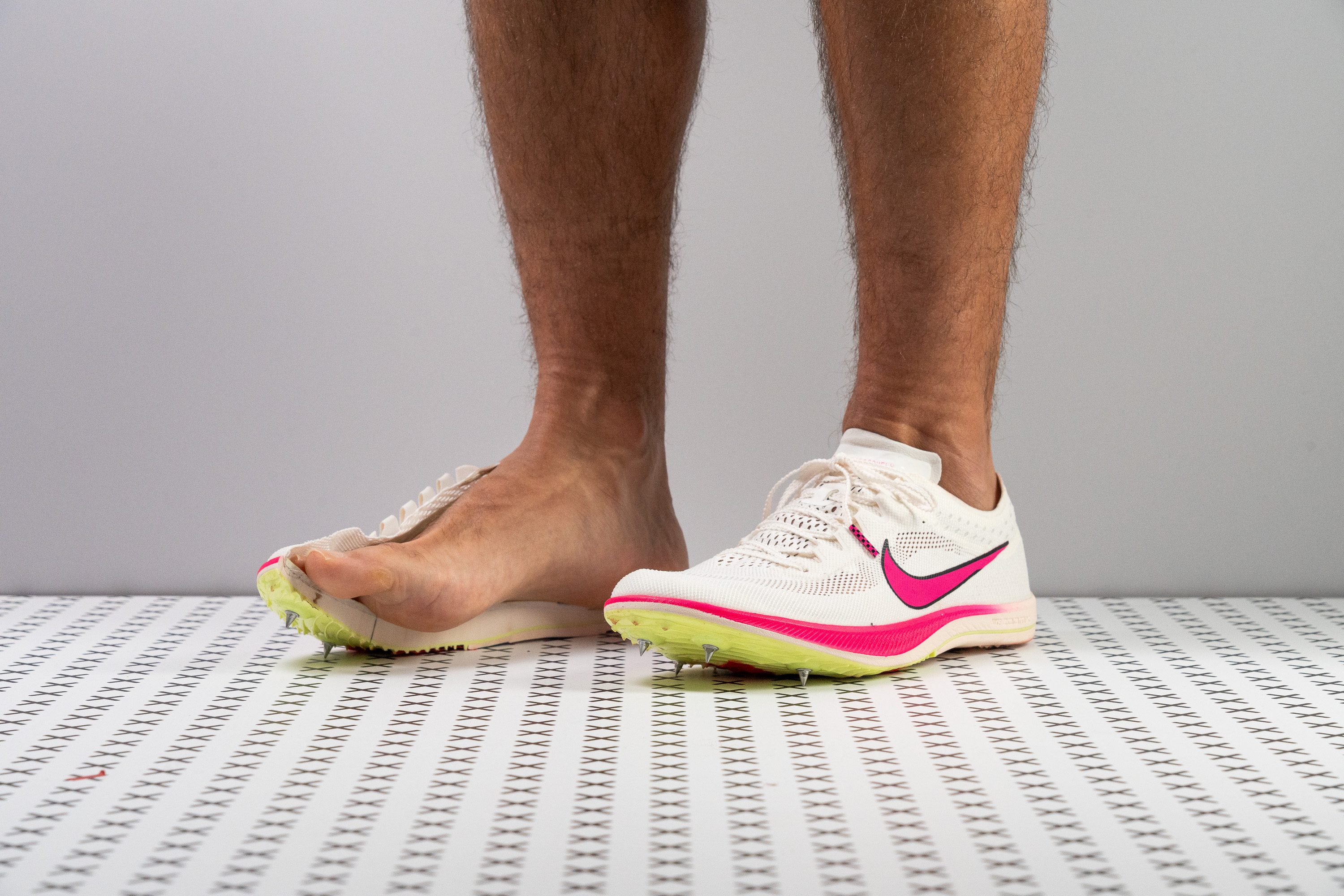Our verdict
Pros
- Perfect for 1500-10k
- Suitable for 400m-800m
- Bouncy ZoomX foam
- Full-length Pebax plate
- Highly breathable
- Premium notched laces
- Lightweight
- Fairly priced
Cons
- Needs better tongue
- Possibly too flexible
- Unstable midfoot design
Audience verdict
- Top 8% in running spikes
- Top 10% in Nike running spikes
Comparison
The most similar running spikes compared
+ + Add a shoe | |||||
|---|---|---|---|---|---|
| Audience score | 96 Superb! | 95 Great! | 88 Good! | 90 Great! | |
| Price | £150 | £160 | £200 | £200 | |
| Weight lab | 4.7 oz / 133g | 5.1 oz / 145g | 4.6 oz / 129g | 4.8 oz / 135g | |
| Breathability | Breathable | Breathable | Breathable | Breathable | |
| Use | Long DistanceMid Distance | Long DistanceMid Distance | Long DistanceMid Distance | Long DistanceMid Distance | |
| Removable spikes | ✓ | ✓ | ✗ | ✓ | |
| Width / fit | Narrow | Wide | Wide | Medium | |
| Toebox width | Medium | Medium | Medium | Medium | |
| Drop lab | 2.0 mm | 0.2 mm | 4.1 mm | 0.6 mm | |
| Size | Slightly small | True to size | True to size | True to size | |
| Midsole softness | Balanced | Balanced | Balanced | Soft | |
| Tongue padding | Average | Average | Thin | Thin | |
| Stiffness | Flexible | Moderate | - | Moderate | |
| Torsional rigidity | Stiff | Stiff | Stiff | Stiff | |
| Heel counter stiffness | Flexible | Flexible | Flexible | Flexible | |
| Outsole thickness | Average | Average | Average | Thin | |
| Outsole hardness | Very soft | - | - | - | |
| Heel tab | None | None | None | None | |
| Heel stack lab | 19.8 mm | 19.9 mm | 19.8 mm | 19.9 mm | |
| Forefoot | 17.8 mm | 19.7 mm | 15.7 mm | 19.3 mm | |
| Insole thickness | Average | Very thick | Thin | Thick | |
| Midsole width - forefoot | Average | Average | Average | Average | |
| Midsole width - heel | Average | Average | Average | Very wide | |
| Ranking | #1 Top 8% | #3 Top 24% | #12 Bottom 7% | #7 Bottom 46% | |
| Popularity | #9 Bottom 30% | #2 Top 16% | #5 Top 39% | #3 Top 24% |
Who should buy
We highly recommend the Dragonfly for track enthusiasts seeking a blend of cushioning and performance. In our view, this spike is:
- Ideal for anyone running 5K or 10K, offering one of the most forgiving rides available that cater to all speed levels.
- Perfect for runners who practice interval training ranging from 400m to 5K in the track.
- Suitable for those competing even in shorter events like 800m who prefer more foam and less stiffness than the usual speedsters offer.
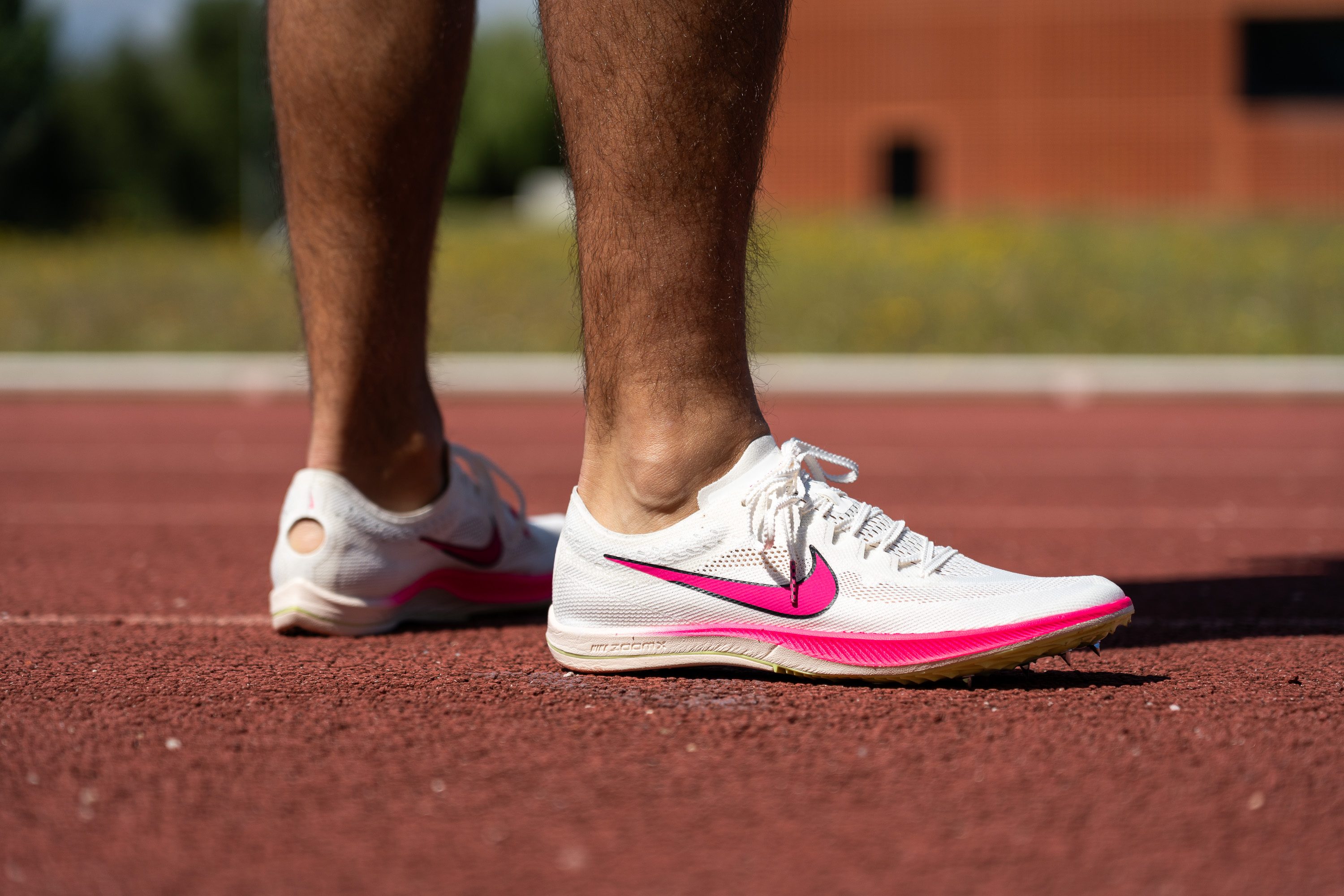
Who should NOT buy
While the Dragonfly excels for many athletes, we do not recommend it for those targeting shorter distances—as its features can impede a powerful, ground-contact stride needed for sprints. For events shorter than 800 metres, we think the Nike Air Zoom Maxfly is a better choice.
Furthermore, the Dragonfly carries a price tag of £150, which might be steep for some. For those in search of a more cost-effective alternative, the Nike Zoom Rival D 10 stands out as an excellent choice. It delivers a nice degree of versatility and comfort, making it a great fit for newcomers to track events or weekend warriors who don't want to spend that much.
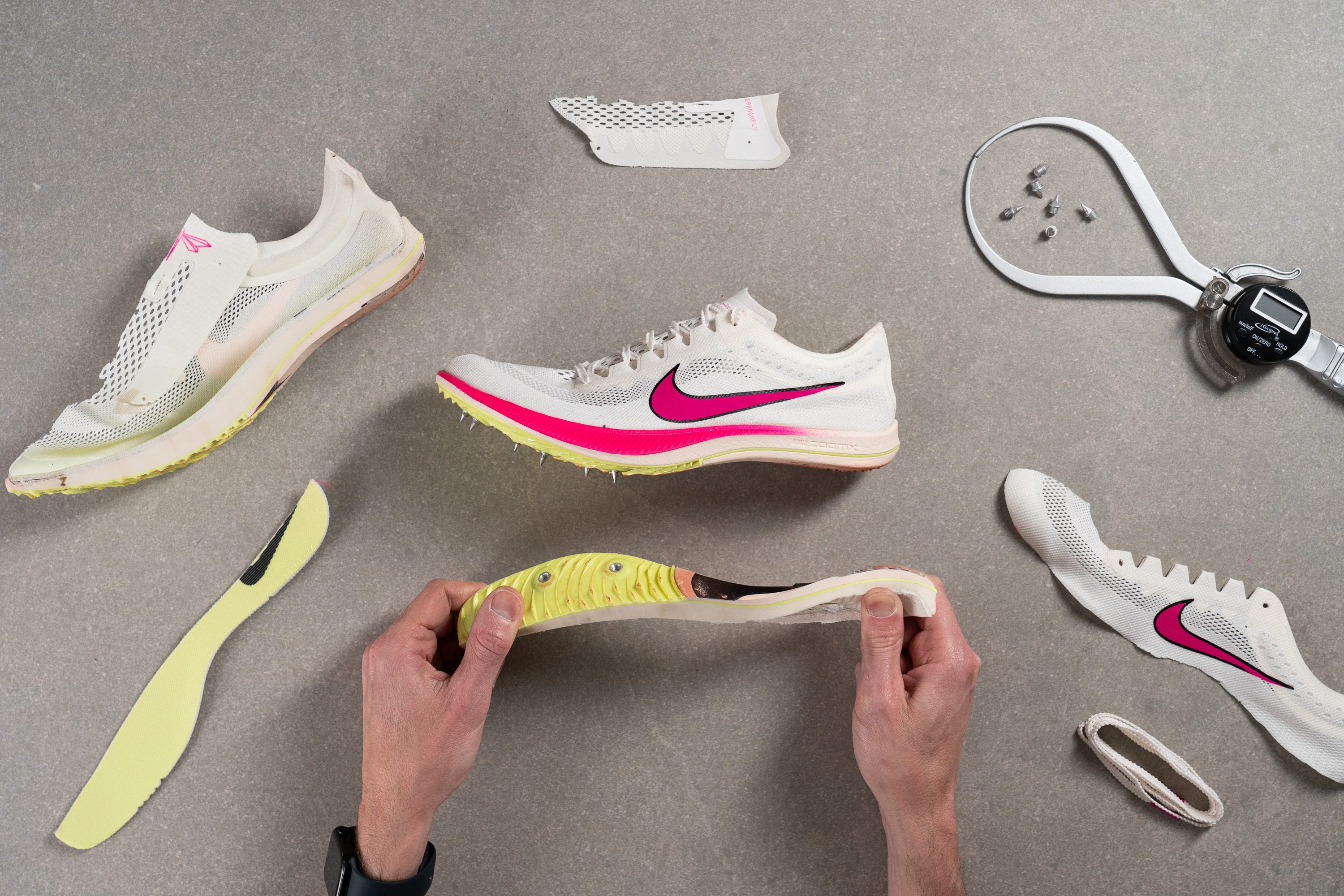
Cushioning
Heel stack
The heel of the Dragonfly pushes the boundaries of World Athletics regulations, which cap track spike height at 20.0 mm for 2024 and beyond, pending any rule changes, of course. Our measurements show it comes in at 19.8 mm.
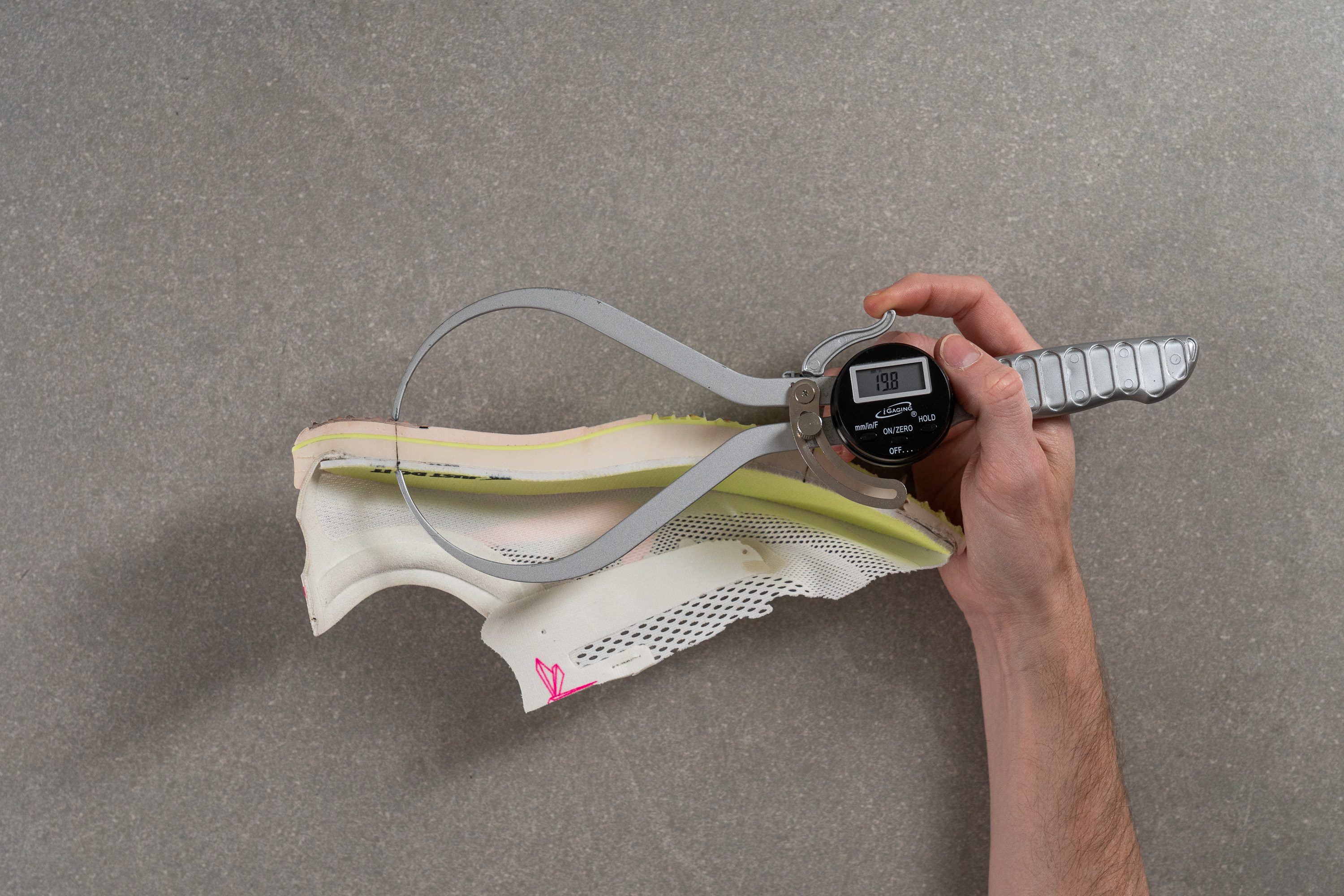
| ZoomX Dragonfly | 19.8 mm |
| Average | 16.0 mm |
Forefoot stack
The forefoot boasts a total stack height of 17.8 mm, primarily composed of ZoomX foam, which effectively saves your legs for the final laps of 5K and 10K races.
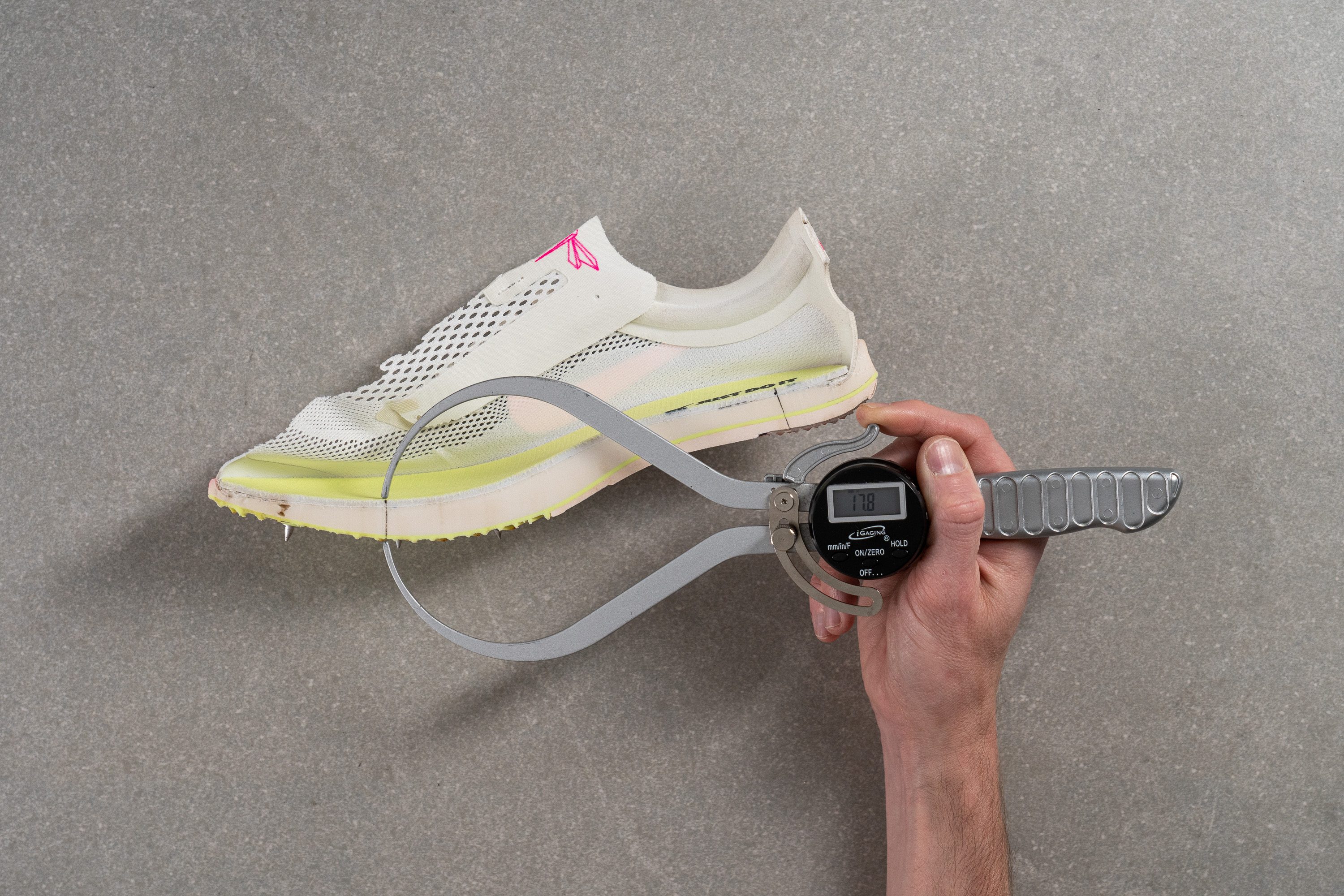
| ZoomX Dragonfly | 17.8 mm |
| Average | 15.3 mm |
Drop
While most running spikes lean towards a zero drop or even a negative offset, the Dragonfly offers a feel similar to low-drop road running shoes.
We discovered in our lab that it features a 2.0-mm drop, which is ideally suited for long-distance events like 5K or 10K. This design not only helps runners who lack that eye-catching forefoot-striking technique but also feels less taxing on the posterior chain and Achilles tendons.
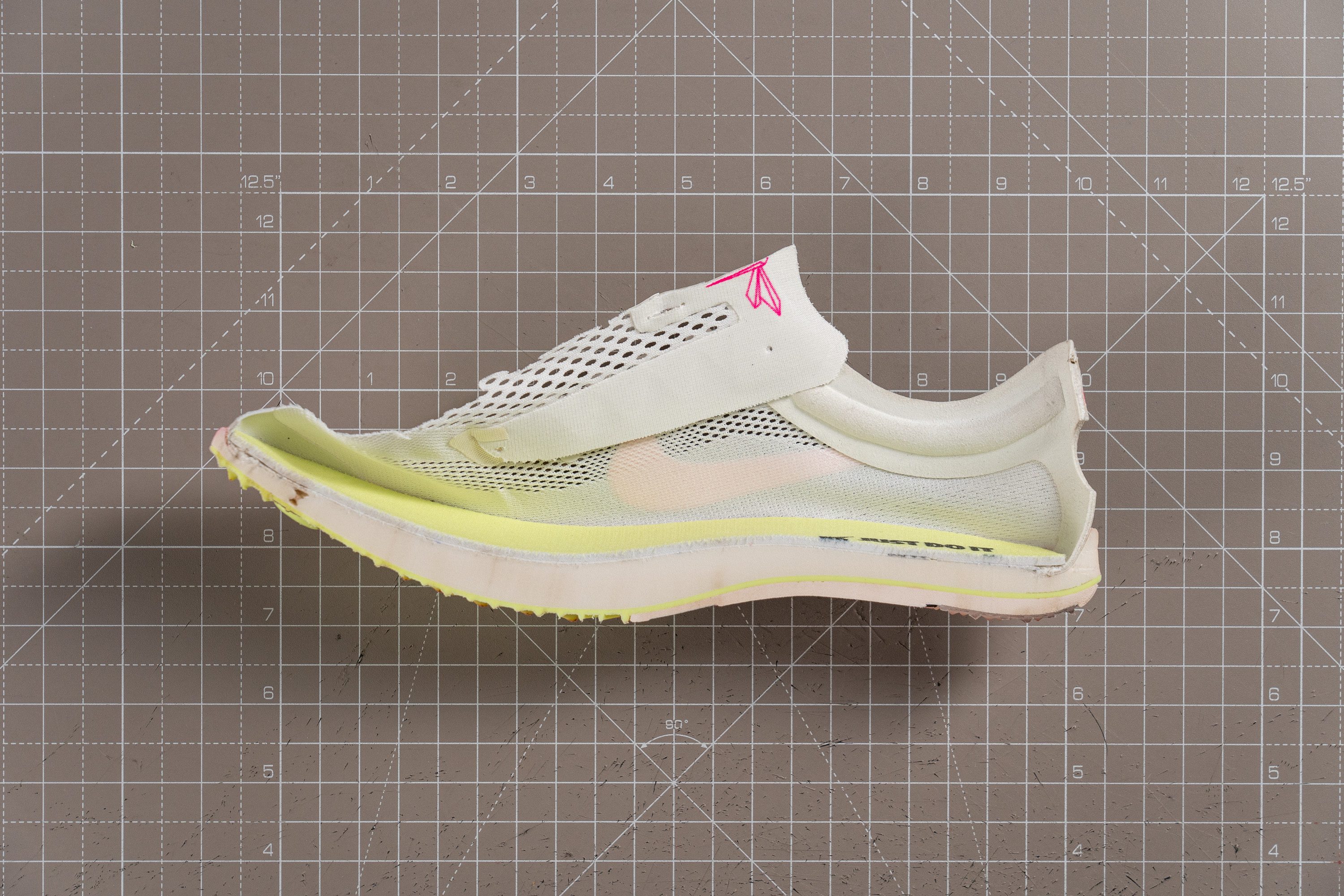
| ZoomX Dragonfly | 2.0 mm |
| Average | 0.7 mm |
Midsole softness
Here’s the highlight of the Dragonfly, which has set it apart since its debut. The shoe boasts a full-length layer of ultra-responsive ZoomX foam, the same material Nike features in models like the Alphafly.
With a softness rating of 20.1 HA, it’s remarkably plush for a track spike, typically known for their firm feel.
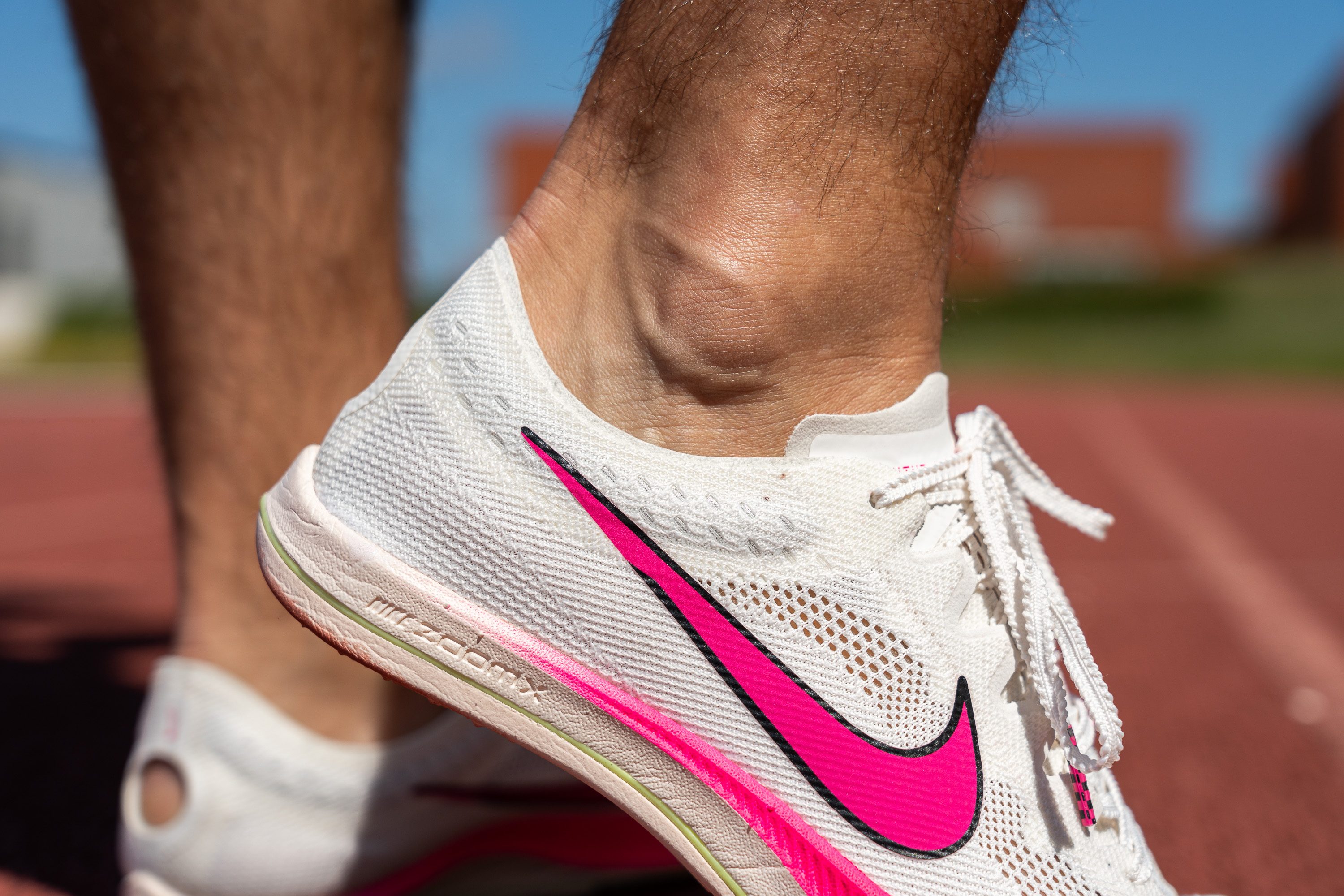
We found that this exceptional cushioning has contributed significantly to its success in long-distance events. The use of Pebax foam brings the leg-saving magic of modern marathon shoes to the track, helping runners preserve their muscles for the final kick!
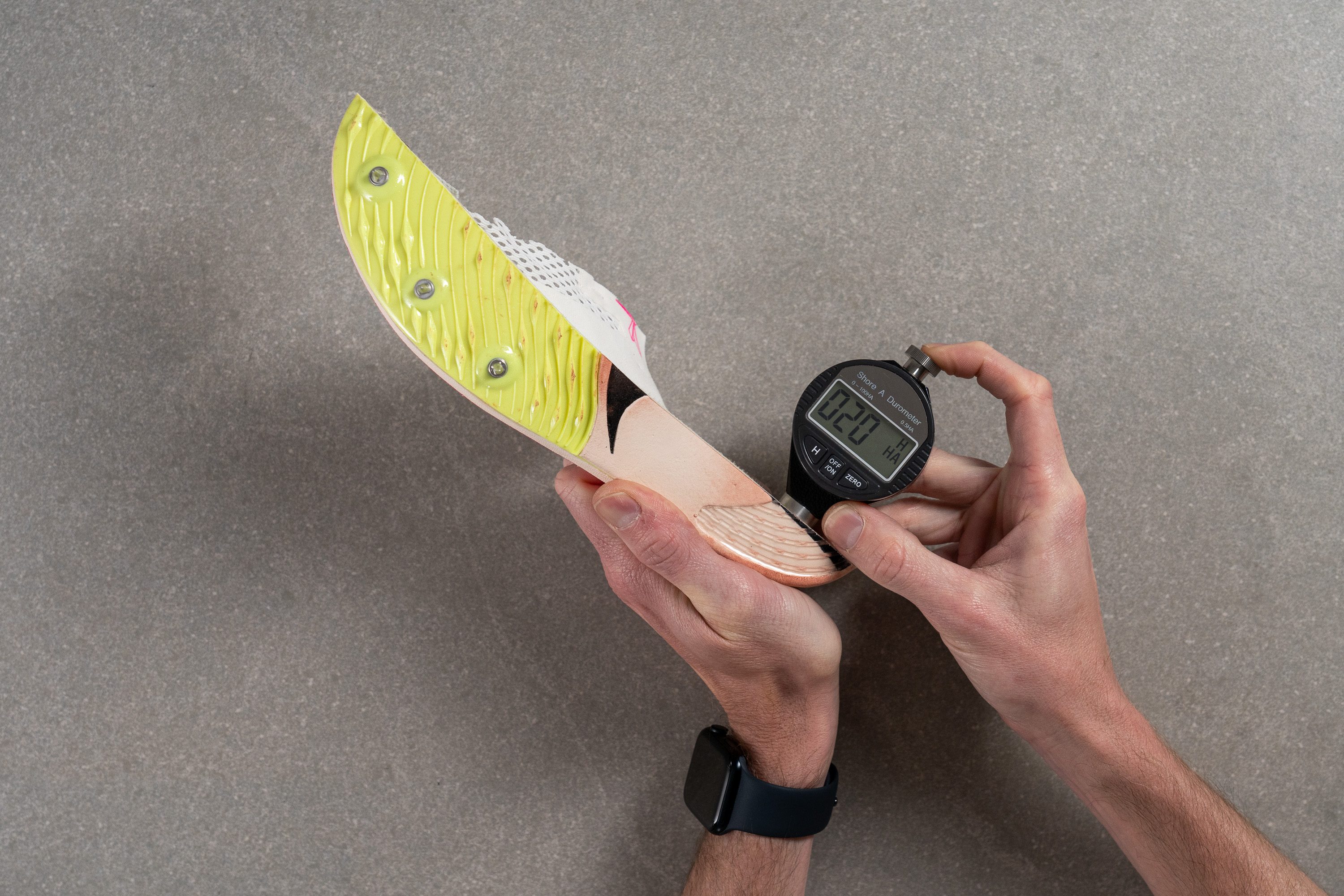
| ZoomX Dragonfly | 20.1 HA |
| Average | 23.8 HA |
Size and fit
Size
Nike ZoomX Dragonfly fits slightly small (120 votes).
Internal length
| ZoomX Dragonfly | 263.9 mm |
| Average | 262.3 mm |
Toebox width - widest part
Shifting our focus to the toebox, we immediately recognized that Nike did a big effort to offer a wider fit compared to typical spikes.
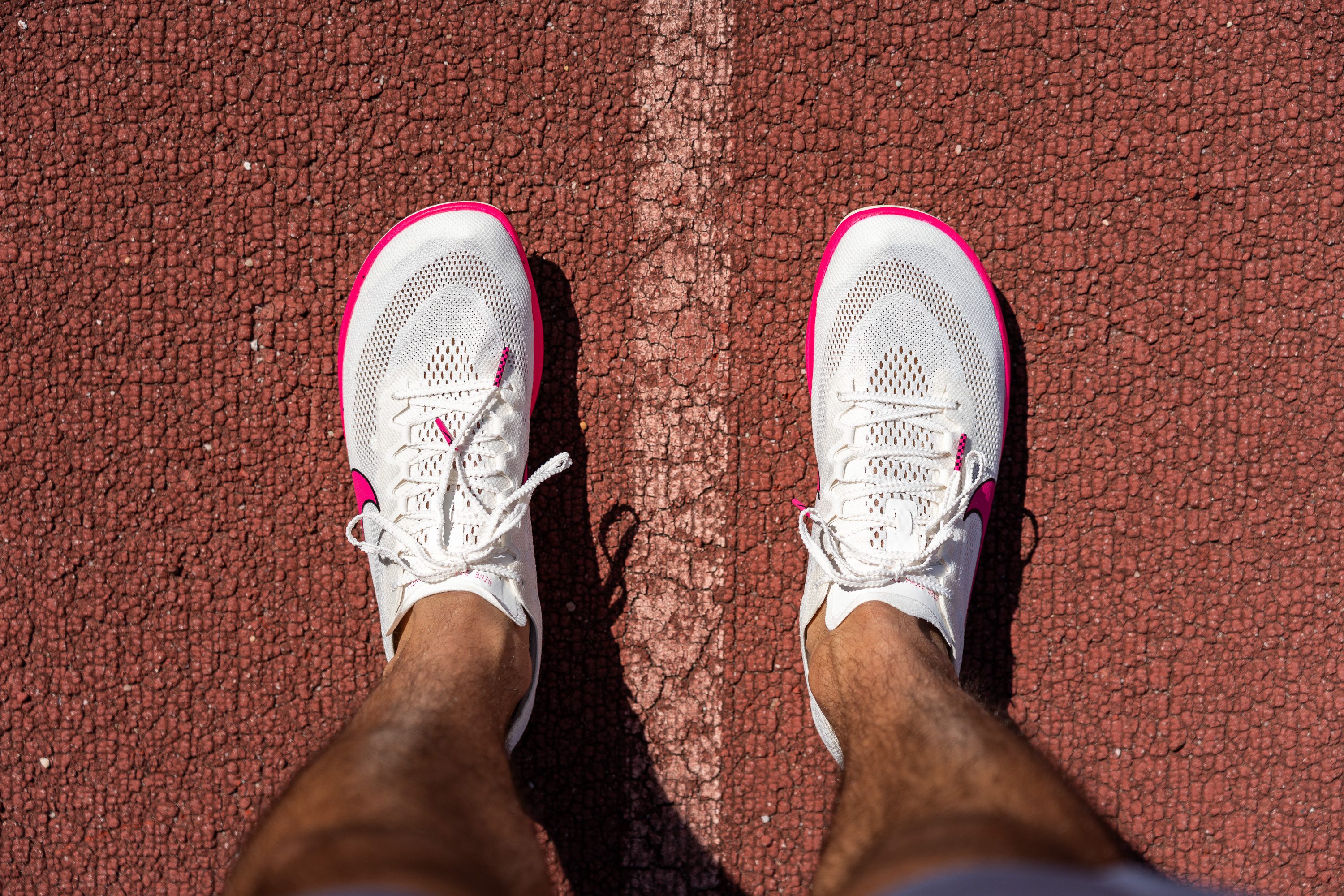
With a width of 92.0 mm, we experienced ample space to comfortably tackle 5K or 10K races without any problems!
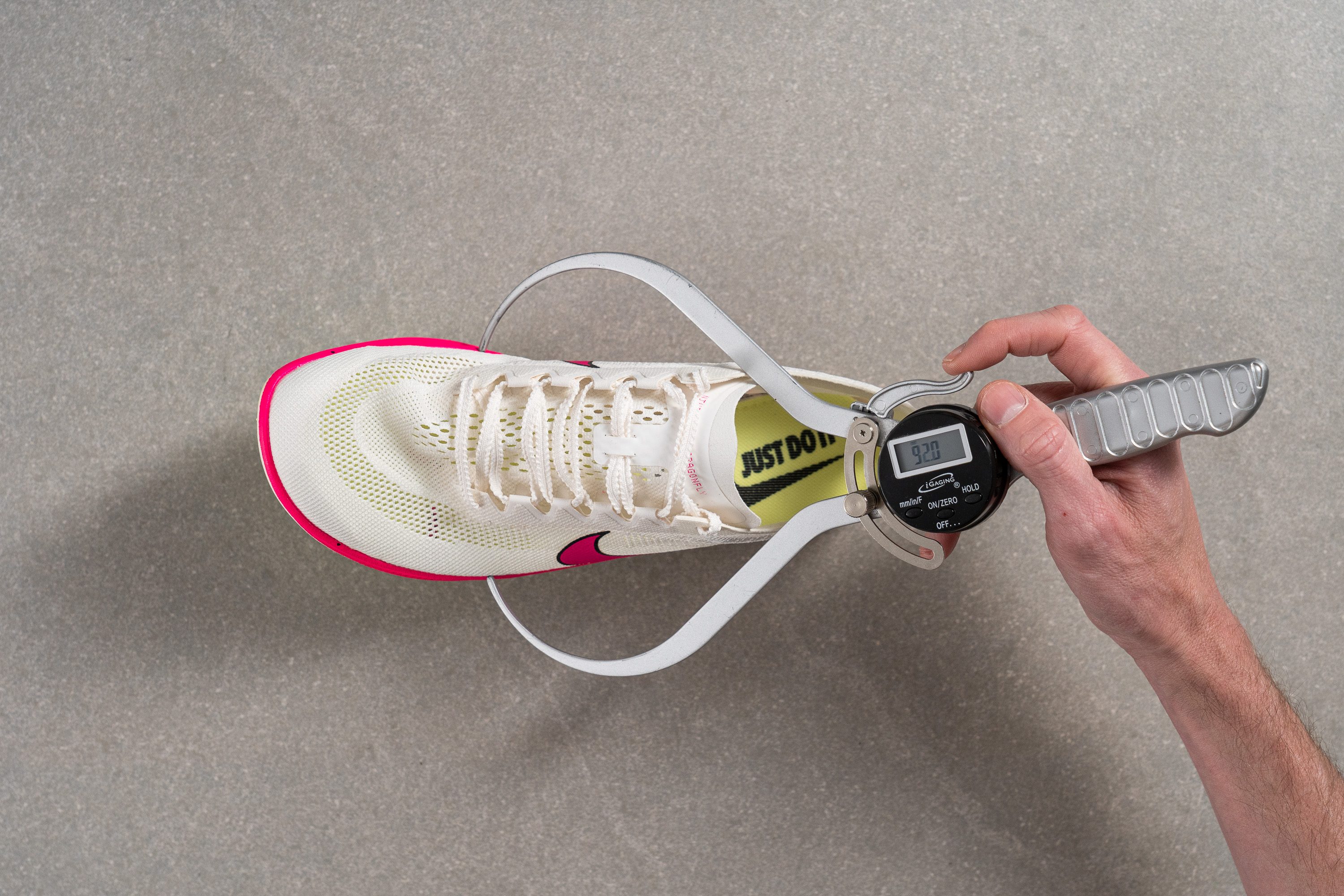
This test follows an older methodology, which is why you don't see recently tested shoes in the chart. Results from different methodologies can not be compared.
| ZoomX Dragonfly | 92.0 mm |
| Average | 88.9 mm |
Toebox width - big toe
However, it was the measurement of the big toe that truly unveiled the comfort level of this fit. At 76.1 mm, the taper is unusually generous for a track spike!
Regarding vertical volume, it aligns with most of its competitors but obviously still feels more confined compared to any road running shoe.
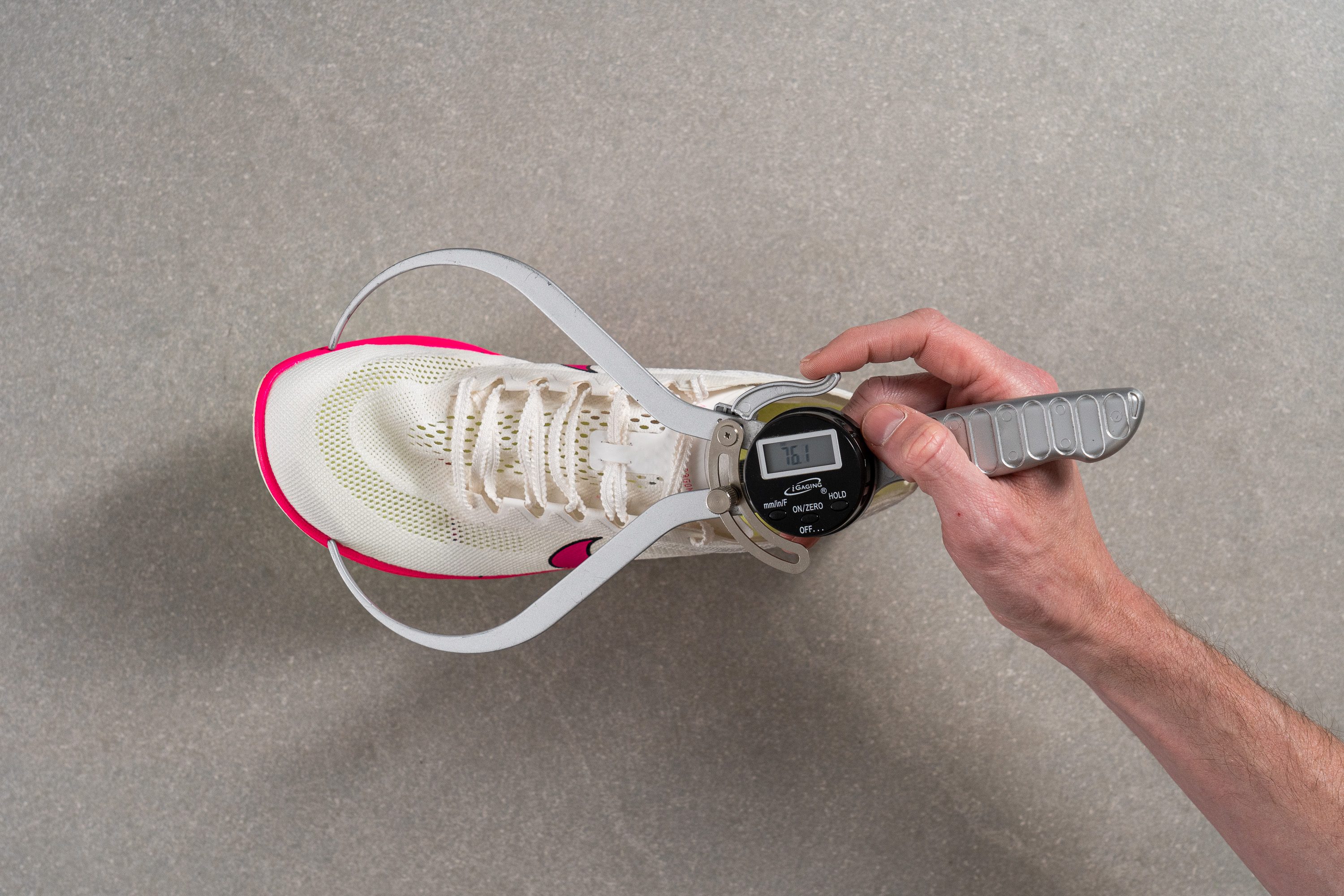
This test follows an older methodology, which is why you don't see recently tested shoes in the chart. Results from different methodologies can not be compared.
| ZoomX Dragonfly | 76.1 mm |
| Average | 73.7 mm |
Flexibility / Stiffness
This result was truly unexpected—despite featuring a Pebax plate, the Dragonfly only registered 6.3N in our 90-degree bend test. This was quite surprising.
Some runners might prefer a stiffer sole similar to that of road competition shoes, yet we found the comfort of this more flexible setup to be a major plus for longer distances in the track.
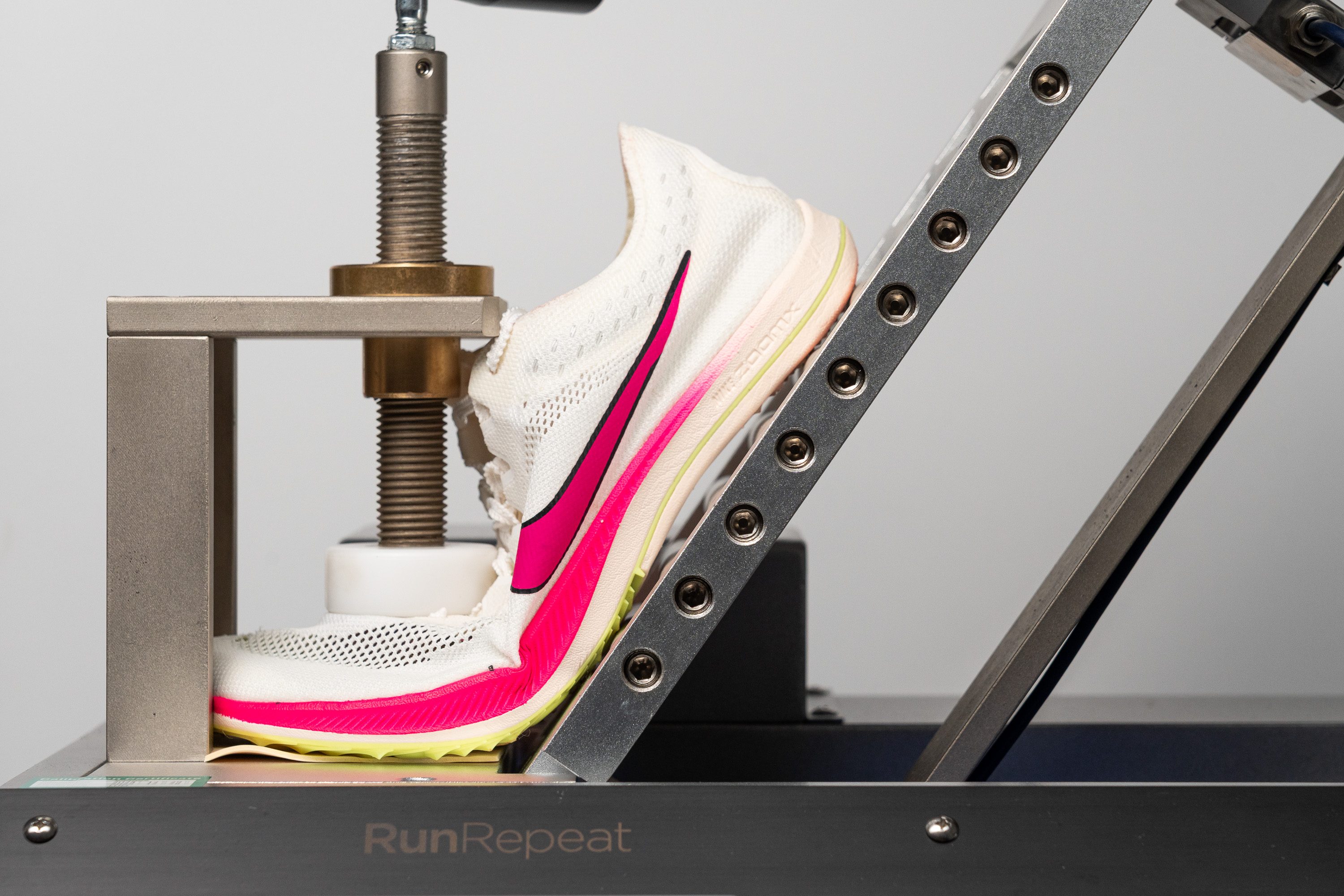
| ZoomX Dragonfly | 6.3N |
| Average | 13.2N |
Removable pins
The Dragonfly is designed with a classic 6-pin setup. Each pin is removable, giving you the ability to tailor the shoe's grip to suit your specific needs perfectly.
We found this very important, as the softer-than-usual forefoot may lead you to choose longer pins for this spike.
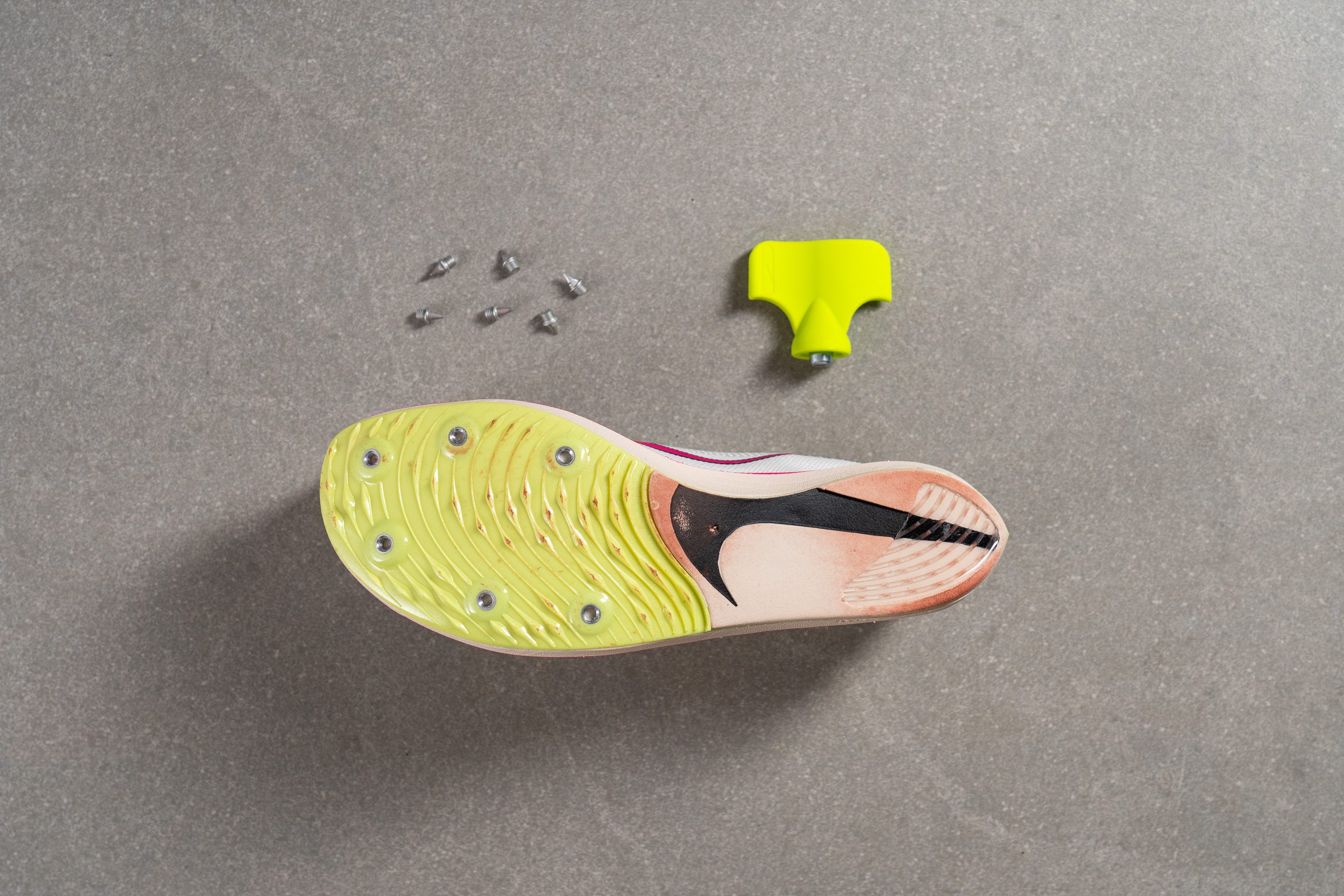
Weight
During our track tests, the Dragonfly made us feel almost barefoot in terms of weight—a sensation we found astonishing.
After placing it on our scale back in the lab, the reason became clear. At only 4.7 oz or 133g, this shoe stands out as one of the lightest long-distance spikes ever made.
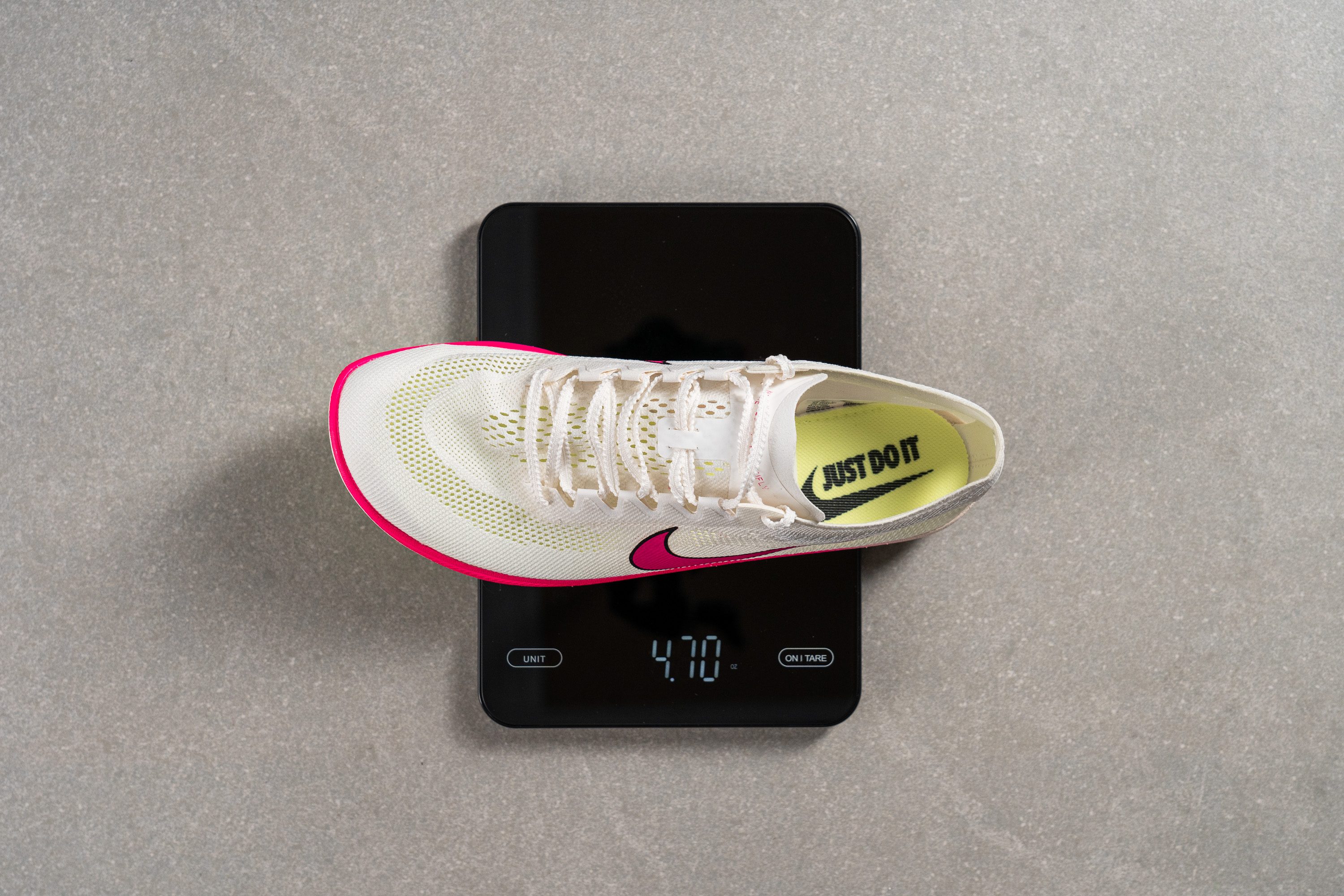
| ZoomX Dragonfly | 4.7 oz (133g) |
| Average | 5.6 oz (158g) |
Breathability
Breathability often takes a backseat in spikes since track events are usually short, but the Dragonfly is crafted for distances ranging from 1500 metres to 10K, necessitating high ventilation, especially due to the warm temperatures of outdoor events.
Luckily, we discovered that the engineered mesh used by Nike features ample spacing between its threads, allowing heat and moisture to escape effectively, which is crucial for longer distances. This is a 4 out of 5 for us.
Using a light, we were able to observe how Nike meticulously designed this model. The toebox and tongue benefit from full ventilation, and there is a noticeable degree of breathability in the midfoot, which we found to be more than sufficient.
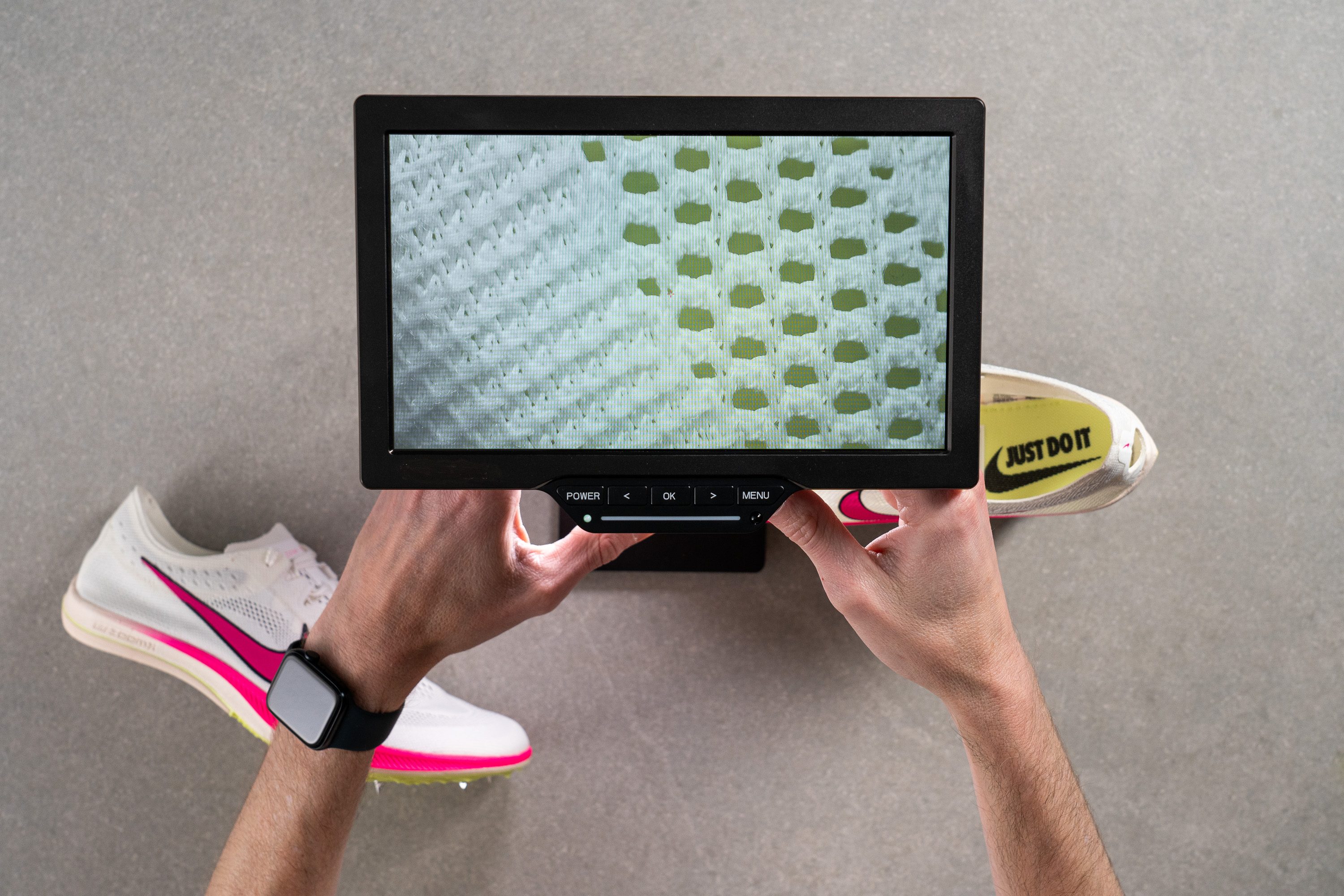
Under the microscope, we noted that the Dragonfly boasts a really good upper. It's simpler for brands to use uniform mesh across all parts, but Nike has strategically enhanced ventilation in key areas with remarkable ease and precision.
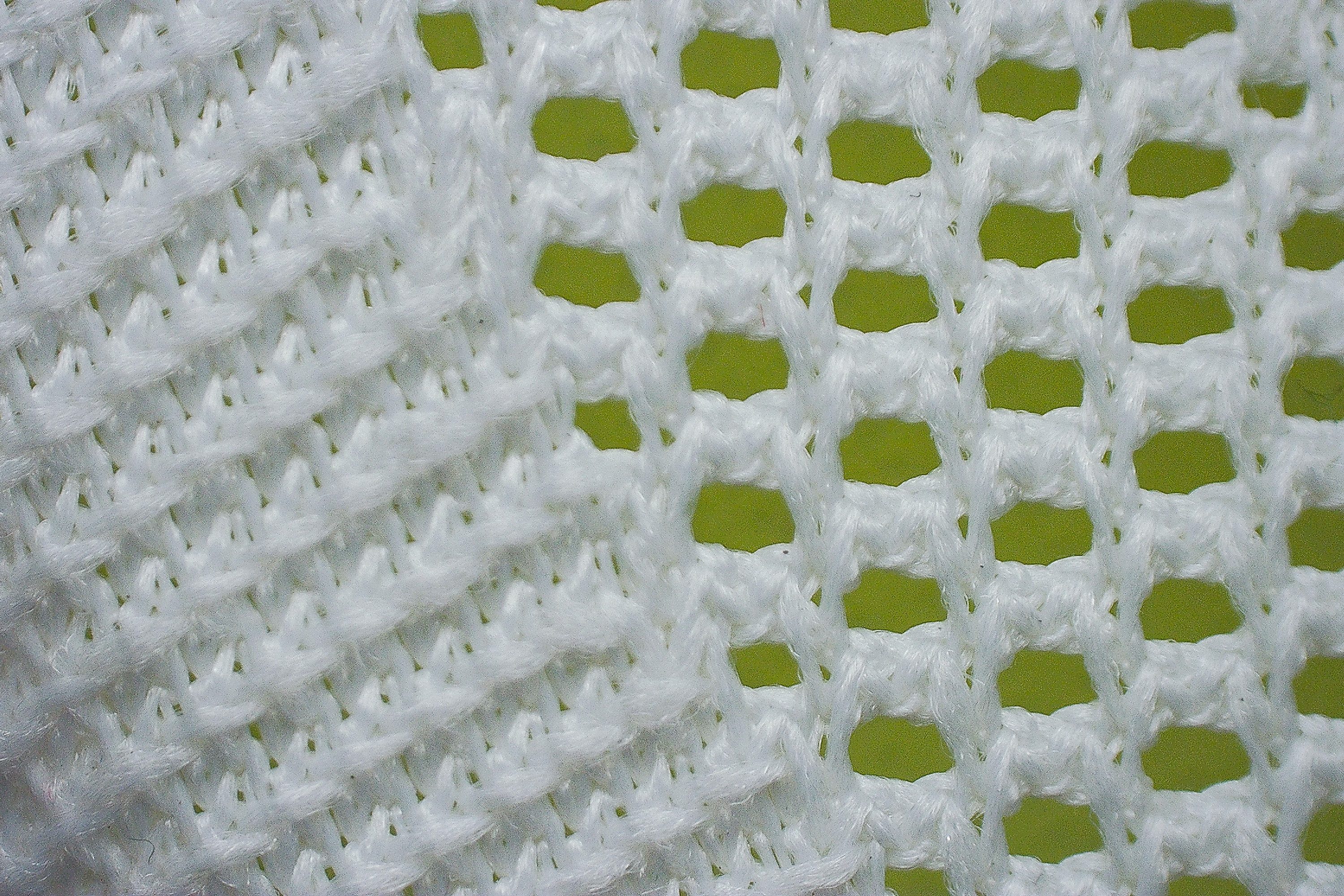
Lastly, in their pursuit of an ultra-lightweight spike, Nike minimised padding and sacrificed comfort, incorporating only two strips in the rearfoot area that extend through the heel.
| ZoomX Dragonfly | 4 |
| Average | 4.1 |
Stability
Torsional rigidity
Despite its surprisingly low longitudinal stiffness, our manual assessment revealed that the shoe is quite resistant to twisting. This led us to award the Dragonfly a 4/5 for torsional rigidity in our lab tests.
| ZoomX Dragonfly | 4 |
| Average | 3.3 |
Heel counter stiffness
The heel counter is hyper flexible, promoting a fit ideal for track competitions. Consequently, we assigned it a predictable rating of 1/5.
| ZoomX Dragonfly | 1 |
| Average | 1.7 |
Midsole width - forefoot
Running spikes typically feature a narrower design, so stability isn't usually expected.
However, our measurements revealed a surprisingly wide forefoot in the Dragonfly for a track spike, measuring 98.2 mm, which does provide some stability and helps mitigate the soft foam's wobbliness.
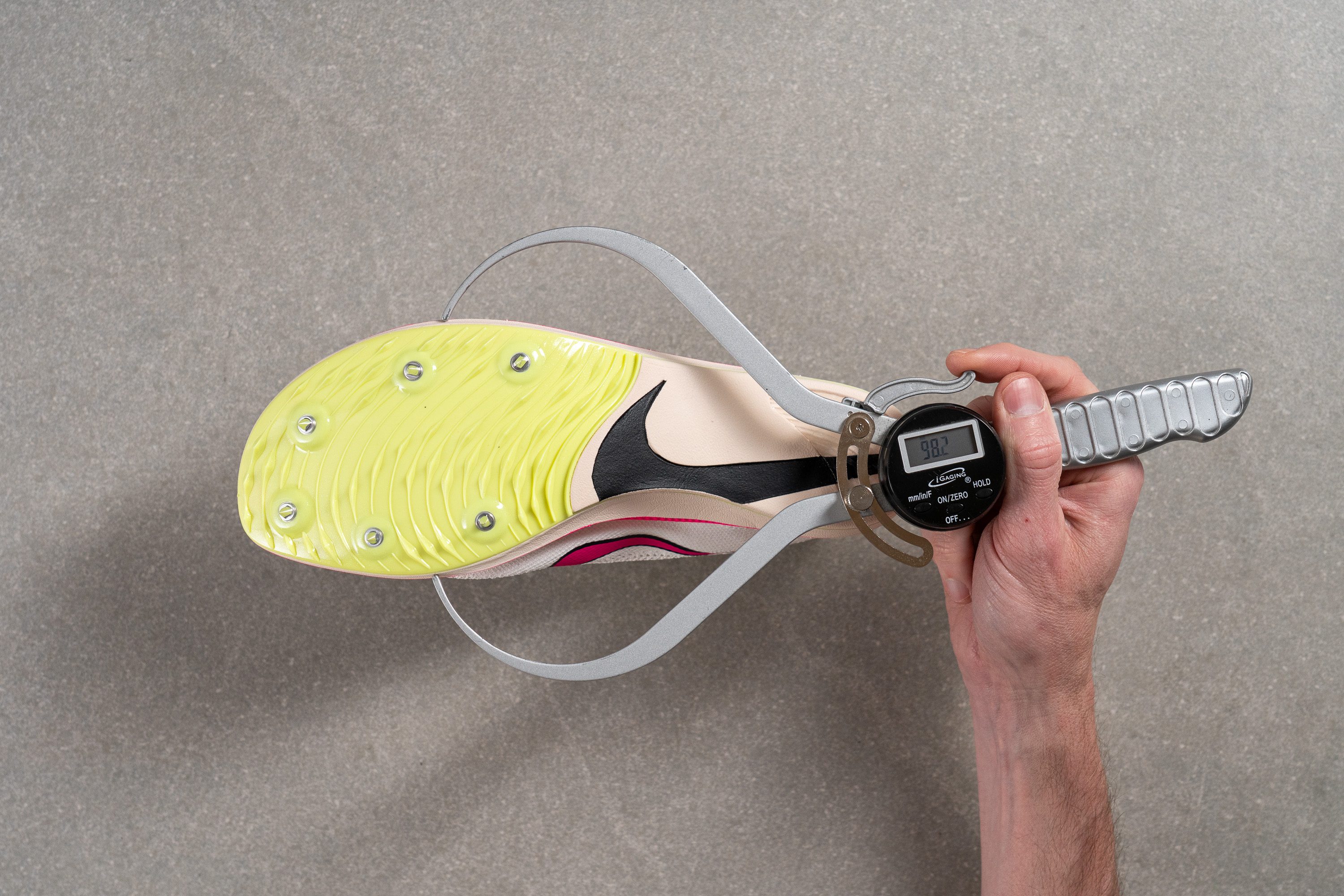
| ZoomX Dragonfly | 98.2 mm |
| Average | 95.1 mm |
Midsole width - heel
The heel, mirroring the narrow shape of the midfoot, measures just 60.2 mm in width, necessitating a midfoot or forefoot striking technique.
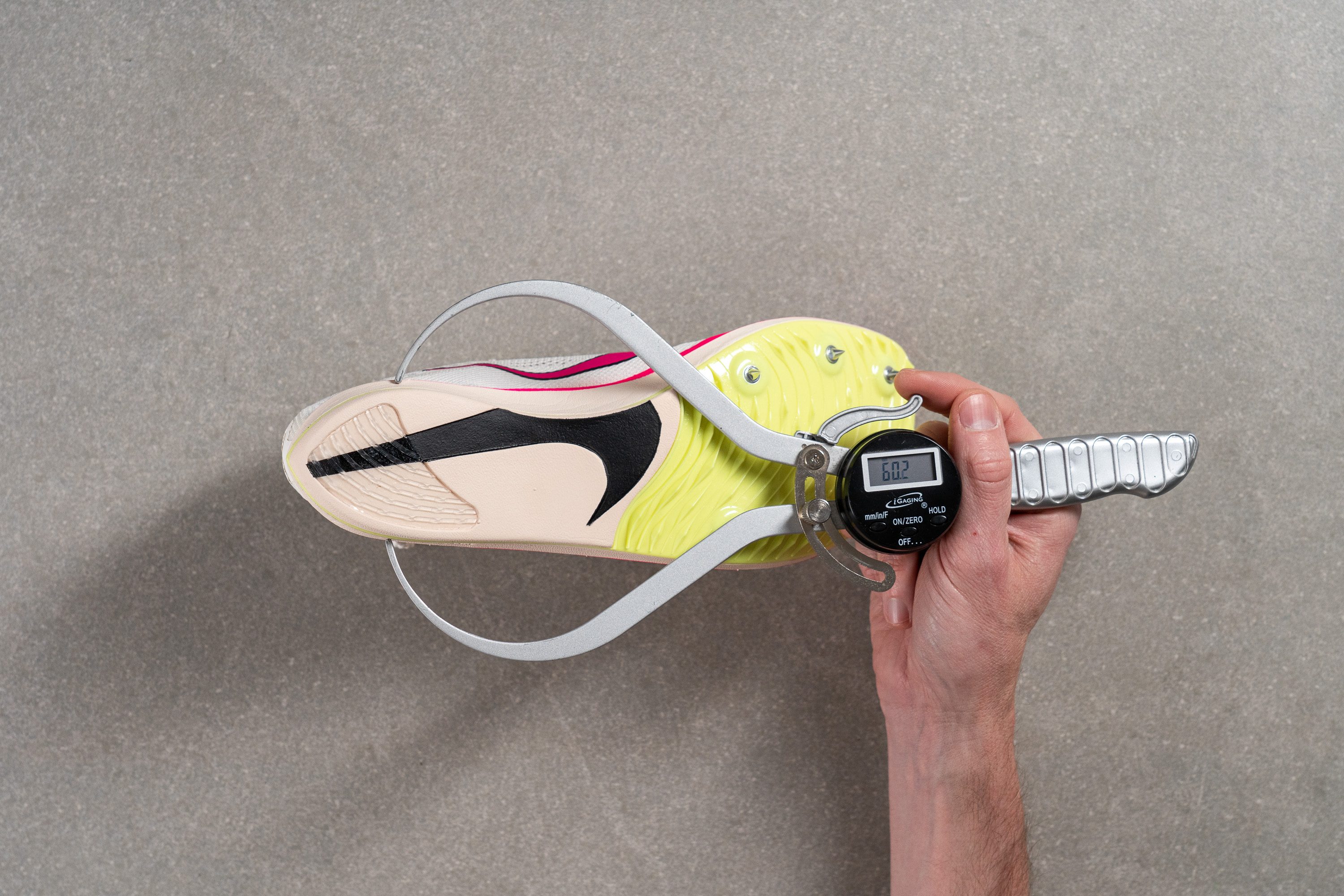
| ZoomX Dragonfly | 60.2 mm |
| Average | 63.0 mm |
Durability
Toebox durability
The upper is notably minimal and thin, which left us quite sceptical during our fierce test with the Dremel tool.
Regrettably, we discovered it scored a dismal 1/5. Although running spikes generally endure less damage than their road or trail counterparts, a slight enhancement in durability for the next version would be greatly appreciated.
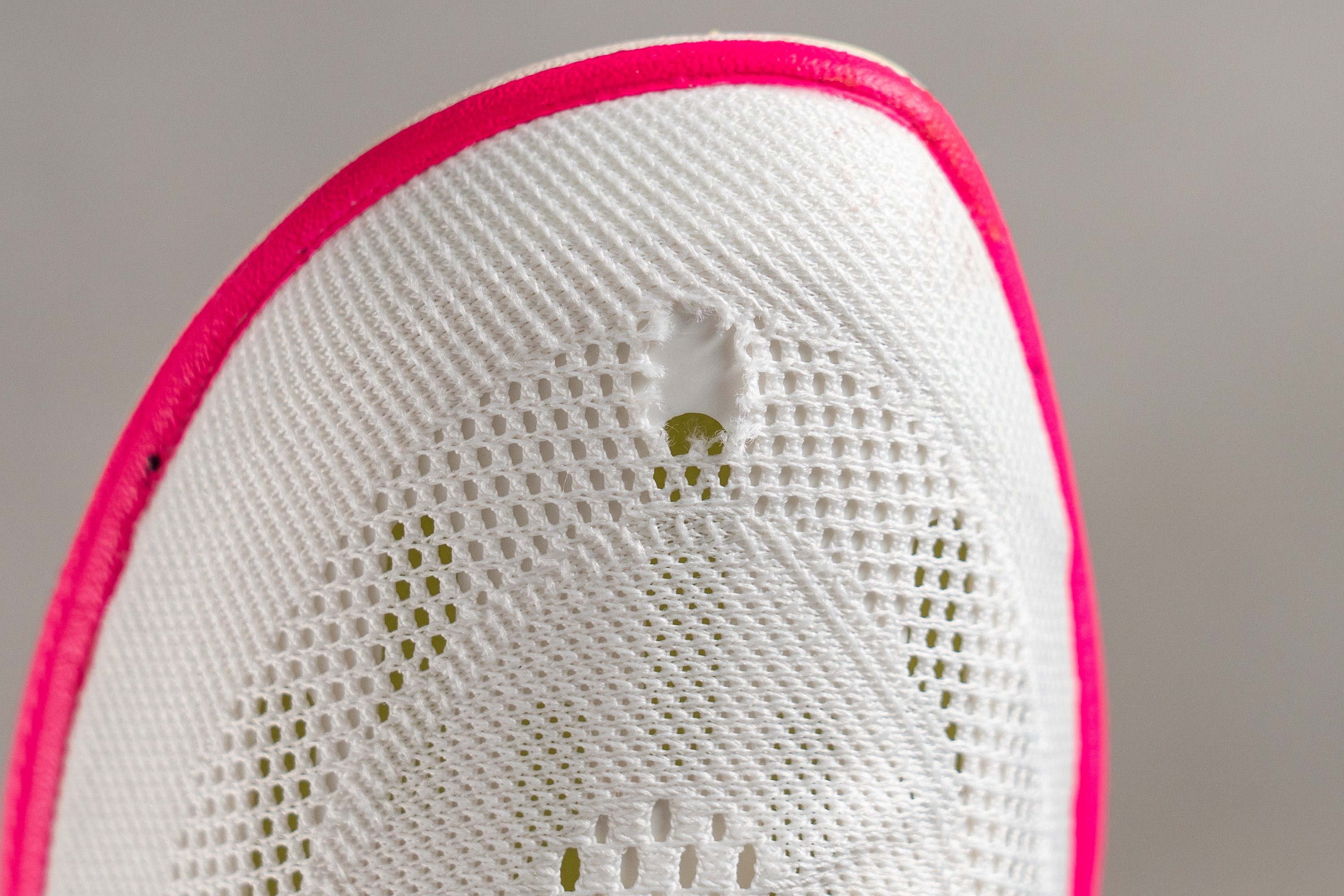
| ZoomX Dragonfly | 1 |
| Average | 2.4 |
Heel padding durability
After evaluating the toebox, we shifted our focus to the heel, applying the same specifications with our Dremel: 5K RPM and 3.2N of force.
Luckily, the results showed improvement over the toebox (3/5), yet it still indicates a need for further refinement in the Dragonfly 2.
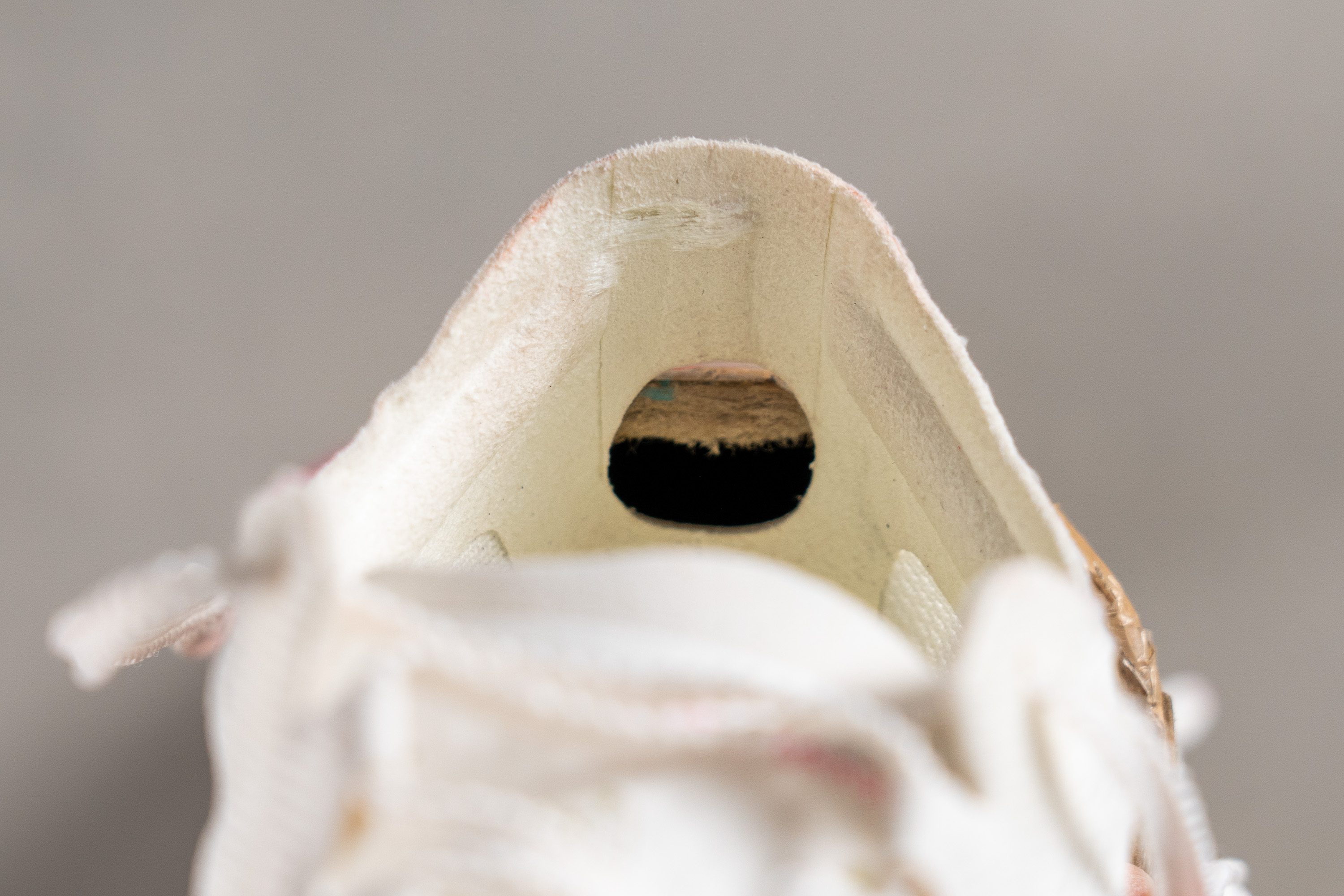
| ZoomX Dragonfly | 3 |
| Average | 3.6 |
Outsole thickness
We measured the thickness of the Dragonfly's outsole at 3.1 mm, but this isn't just any ordinary outsole—it's a Pebax plate that extends from the heel to double as the outsole in the forefoot.
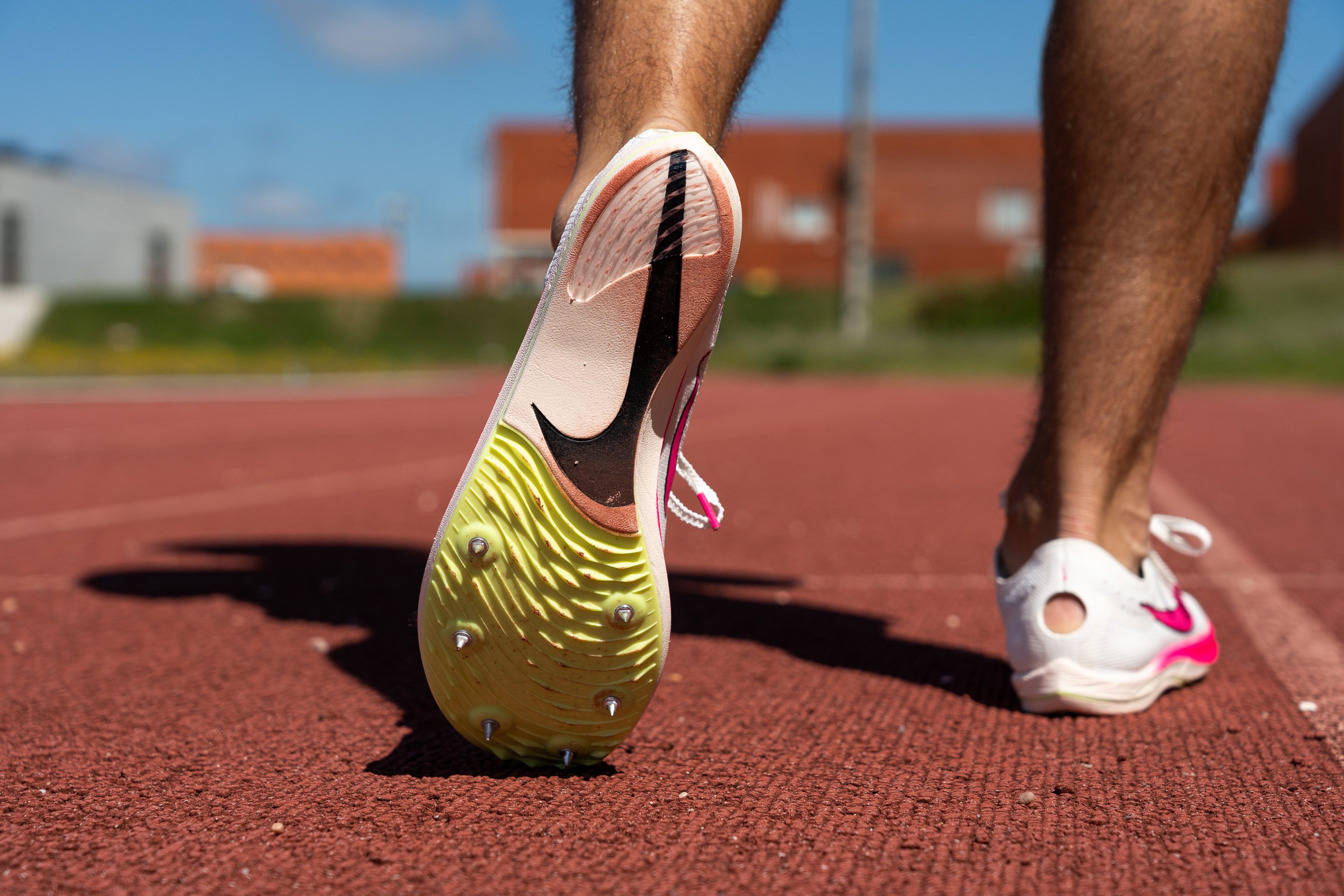
This unique design enhances responsiveness and is quite effective.
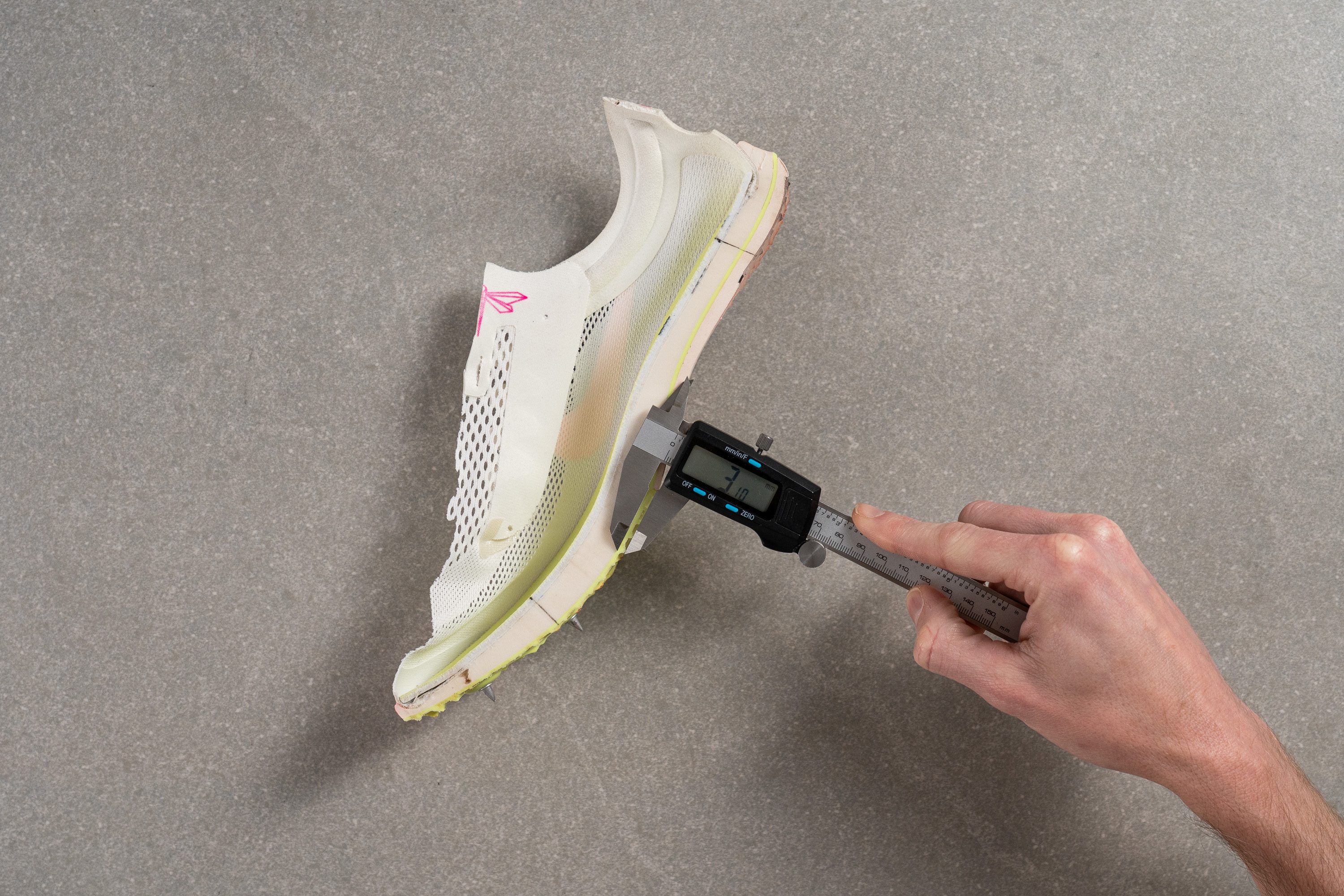
| ZoomX Dragonfly | 3.1 mm |
| Average | 2.7 mm |
Outsole hardness
We also measured the hardness of the rubber coverage Nike uses in the heel, registering it on our durometer at just 55.0 HC. While that may seem low, it's important to note that this shoe isn't designed for firm heel landings.
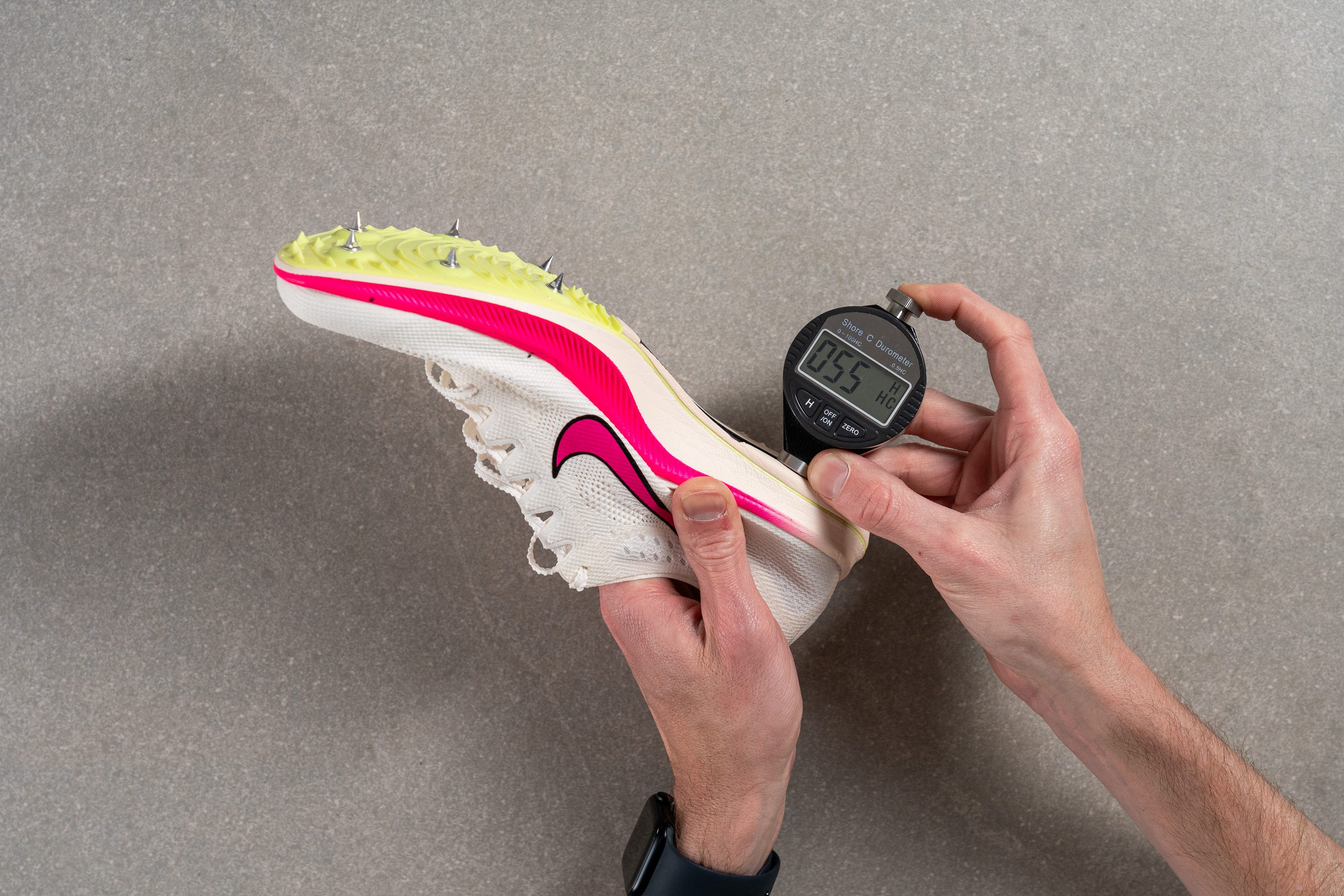
| ZoomX Dragonfly | 55.0 HC |
| Average | 74.4 HC |
Misc
Insole thickness
The insole is quite basic and minimal, measuring only 2.8 mm, yet it feels perfectly adequate for a track spike. There’s really nothing more to add about it, and that is a definite plus!
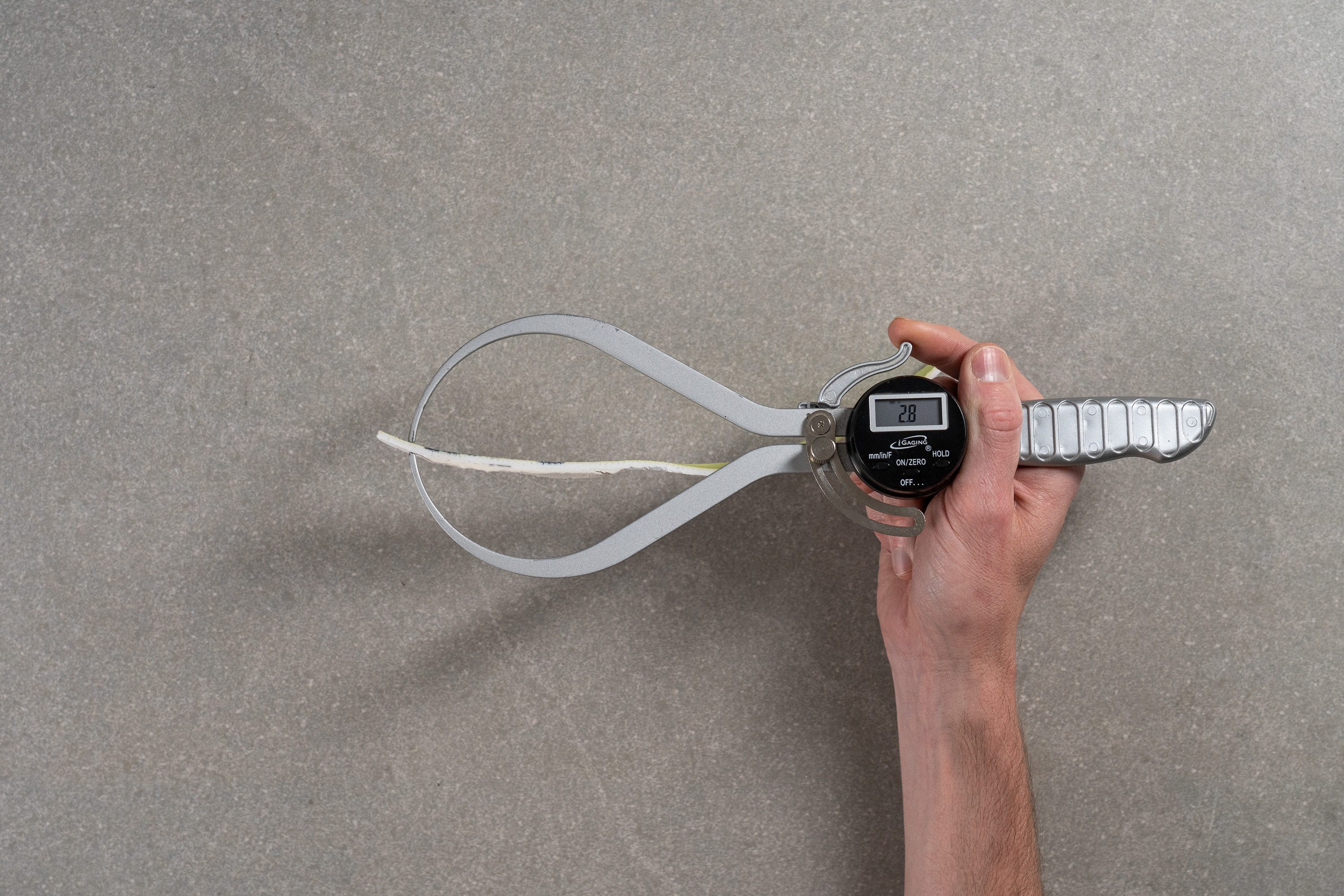
| ZoomX Dragonfly | 2.8 mm |
| Average | 2.9 mm |
Tongue padding
The tongue of the Dragonfly, inspired by the Vaporfly, is exceptionally minimal with just 1.4 mm of padding.
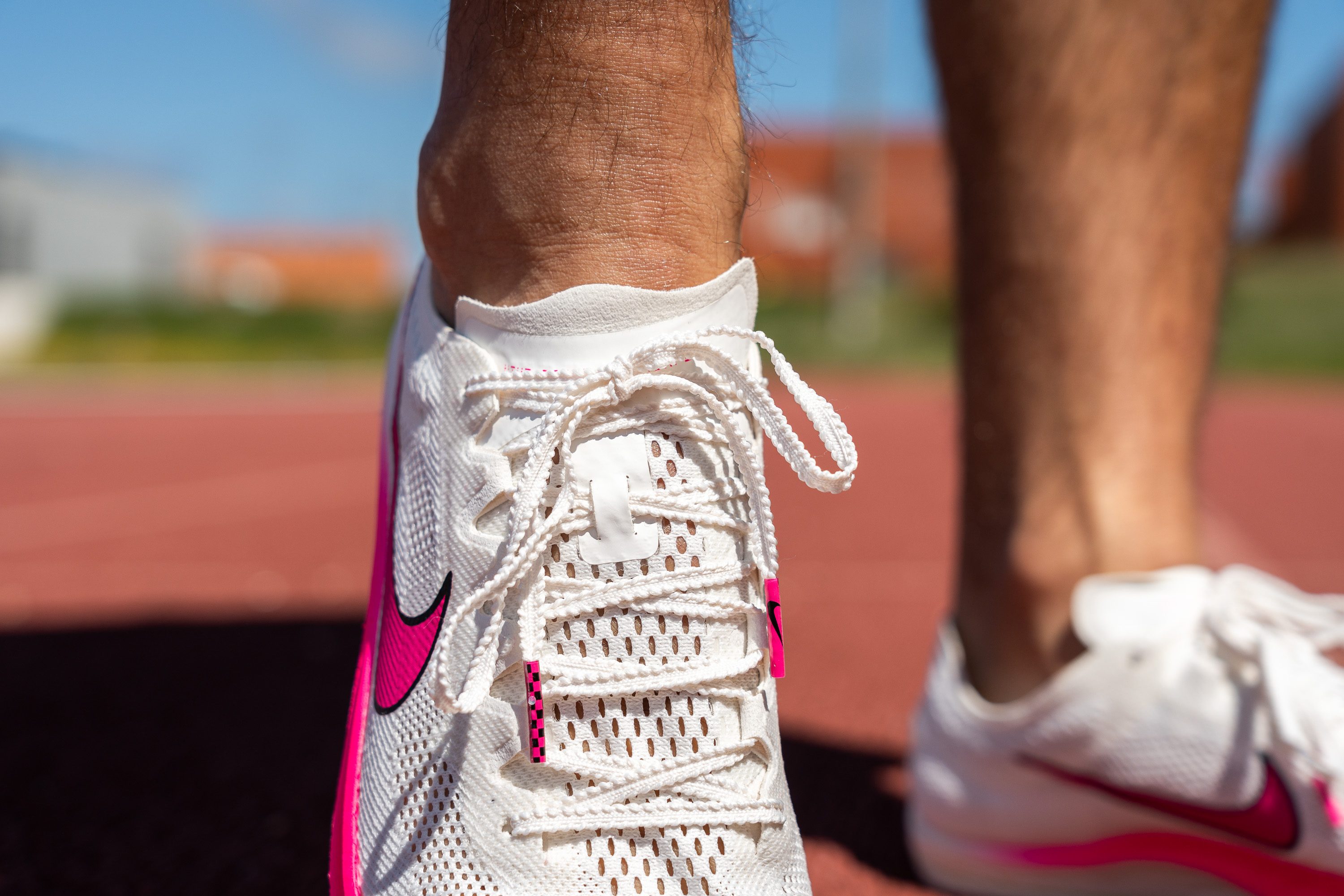
We discovered that while this design offers a streamlined feel, those participating in 5K or 10K races should adjust the notched laces with care. Oh, and these laces themselves are a cool premium feature, enhancing both the lockdown and the aesthetic appeal of the shoe.
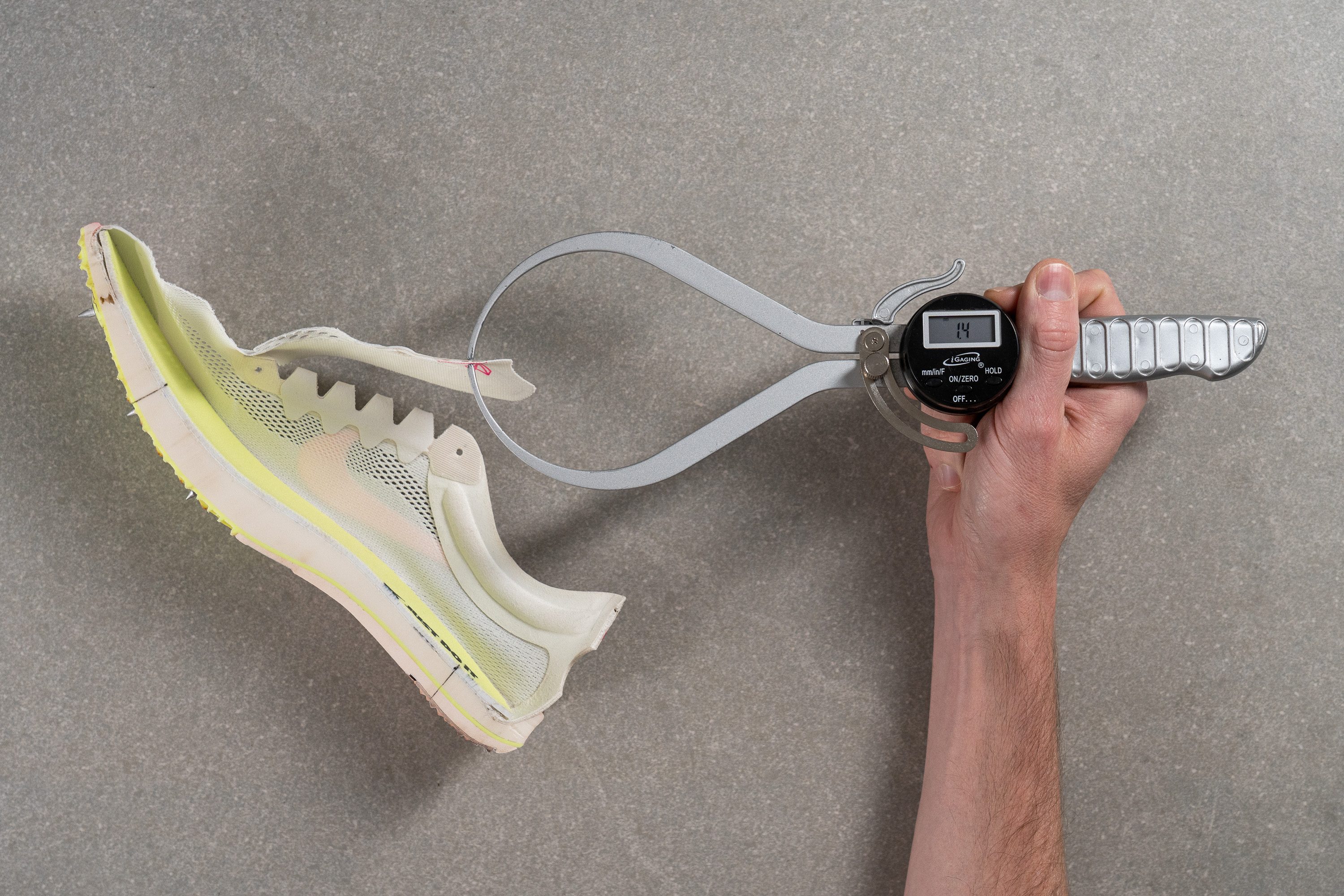
| ZoomX Dragonfly | 1.4 mm |
| Average | 2.3 mm |
Heel tab
The Dragonfly lacks a heel tab, yet it incorporates a now-iconic Nike feature—a large hole in the heel counter. This iconic design enhances heel lock and slightly reduces weight, so it's a win-win in our books.
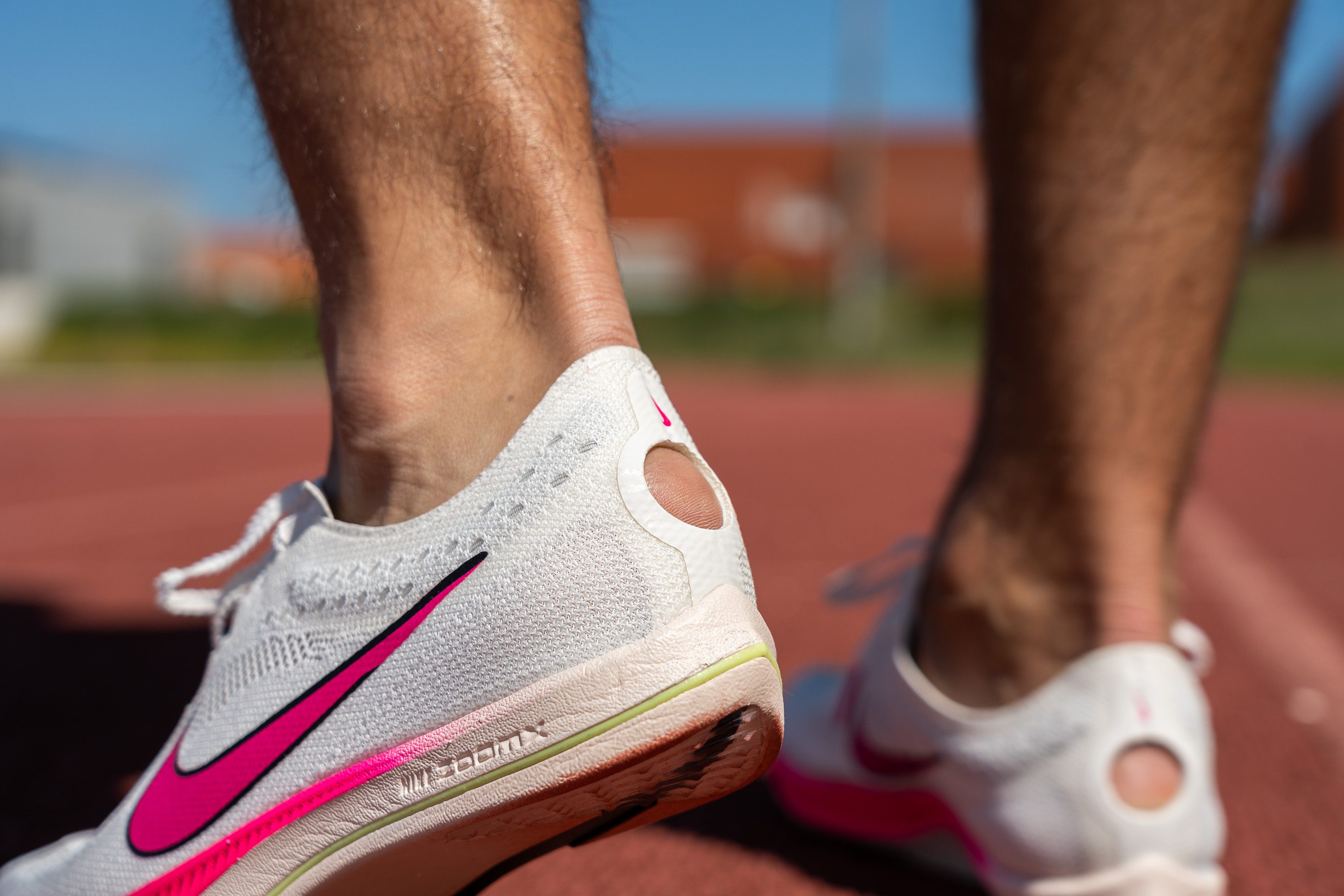
| ZoomX Dragonfly | None |

